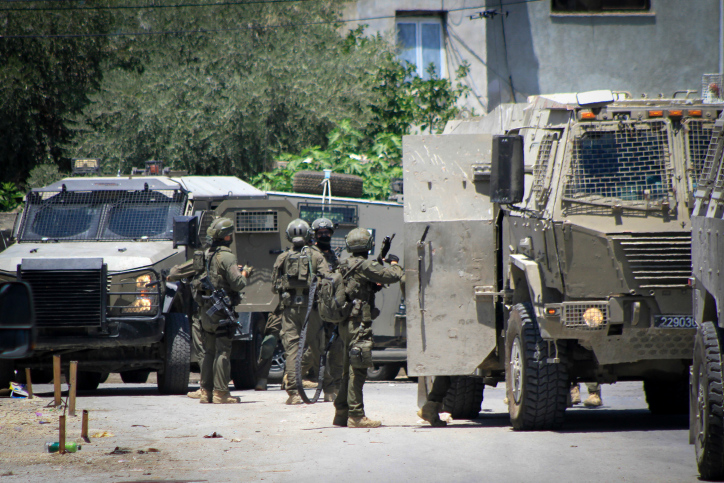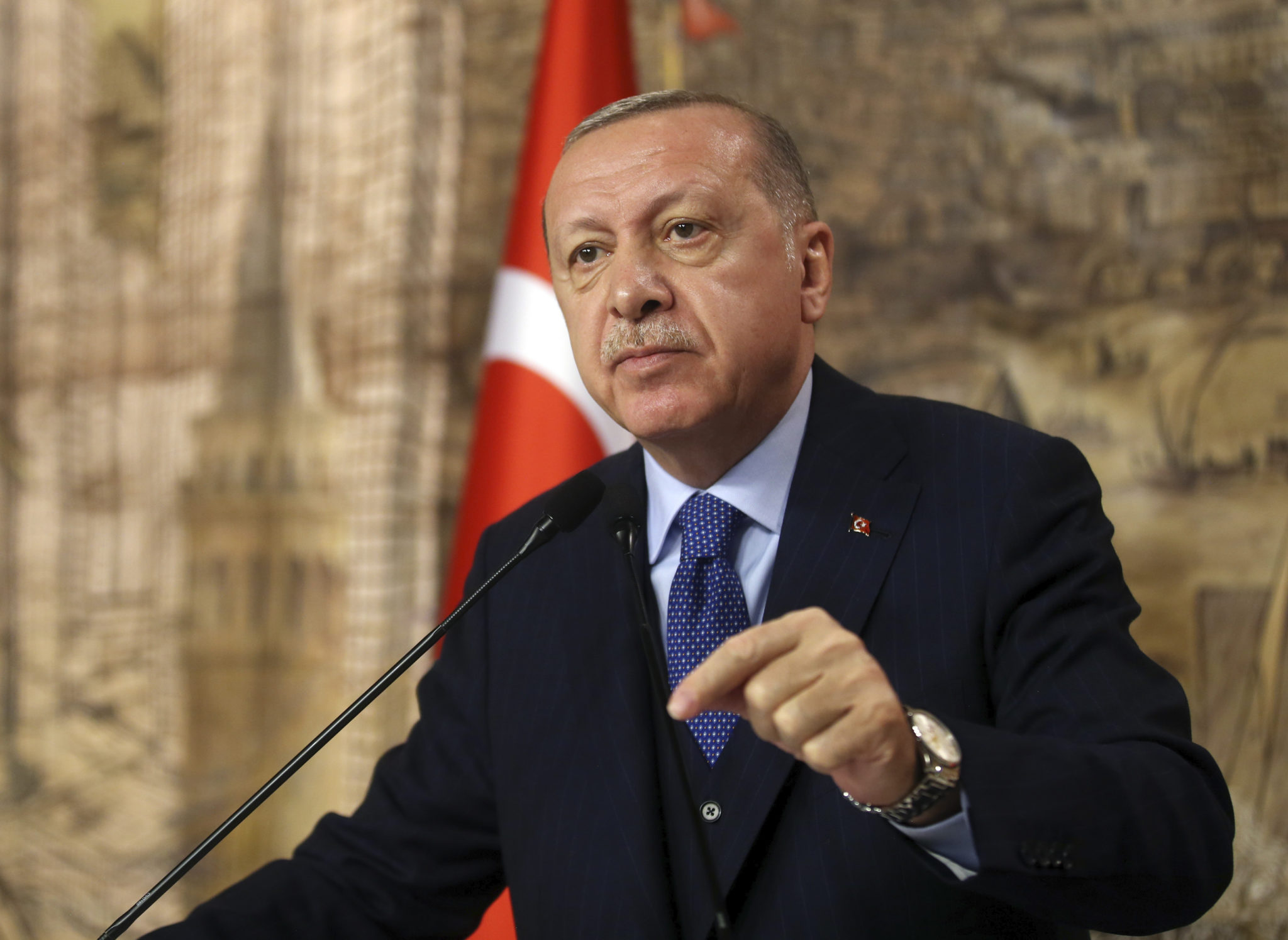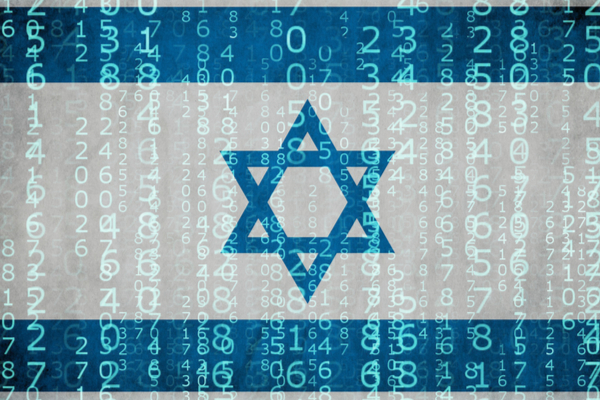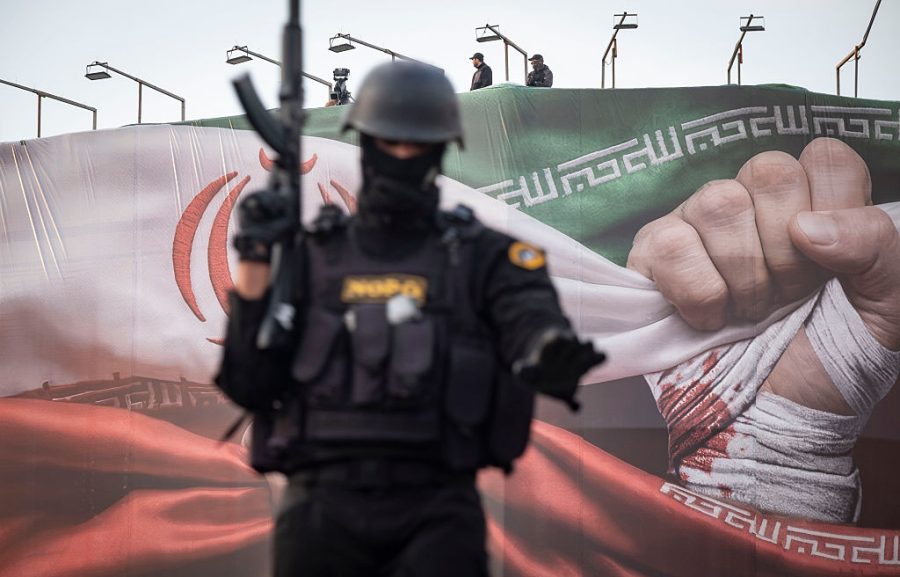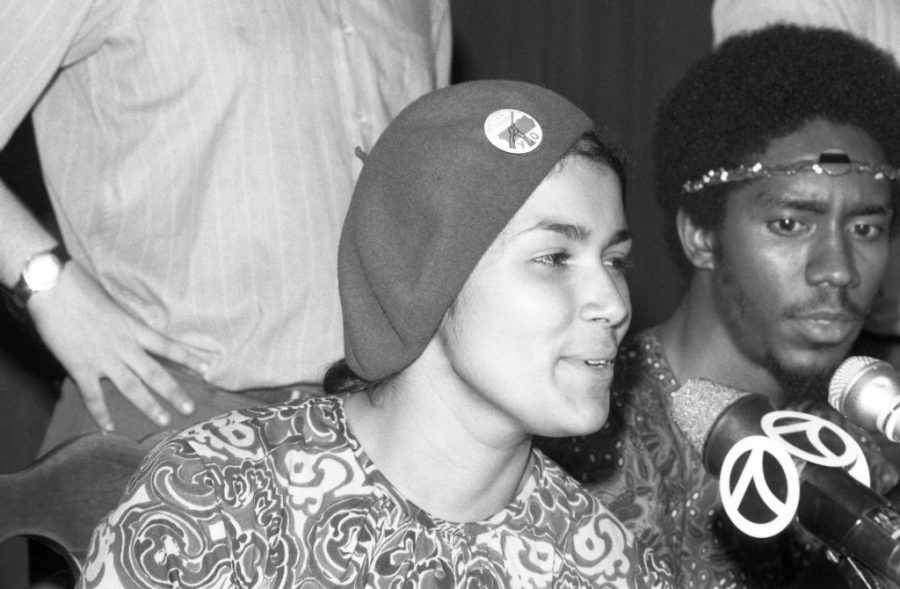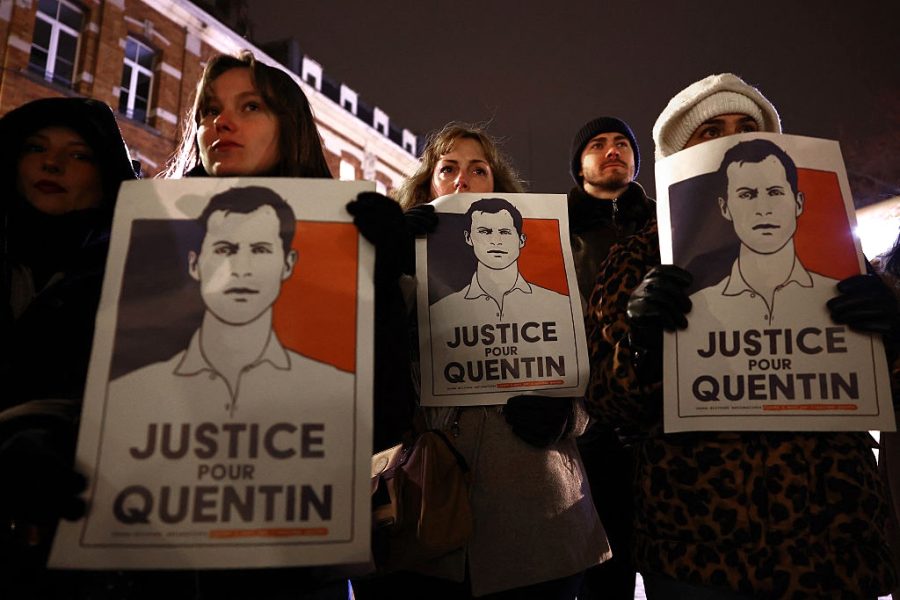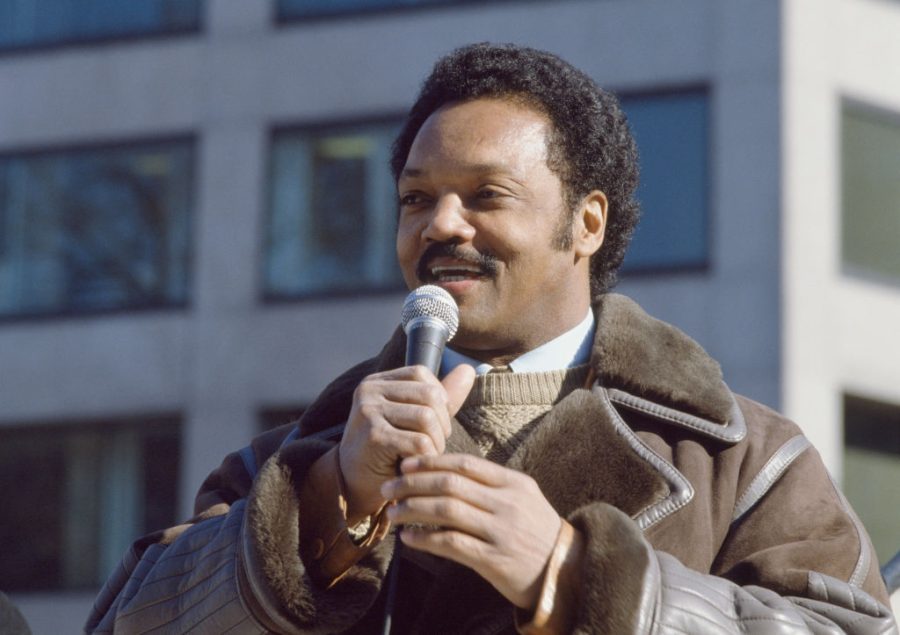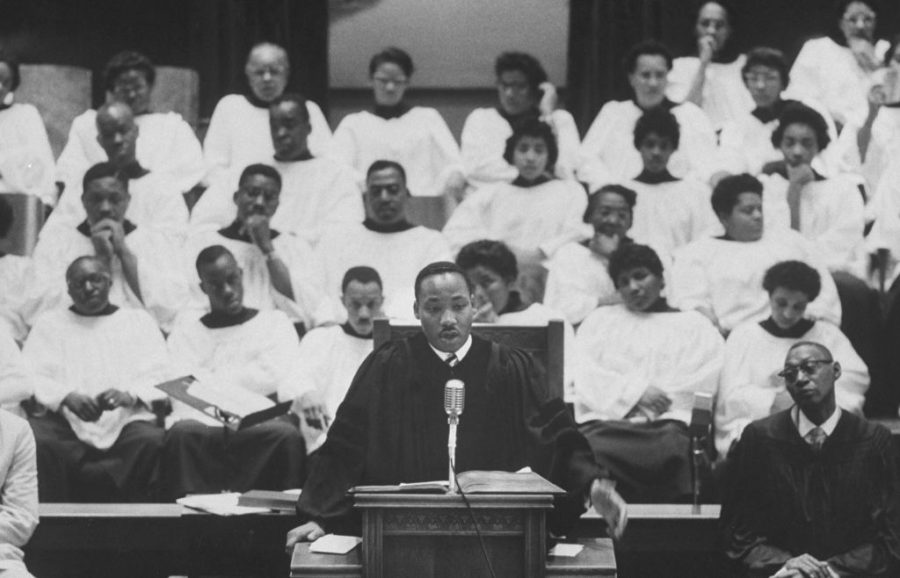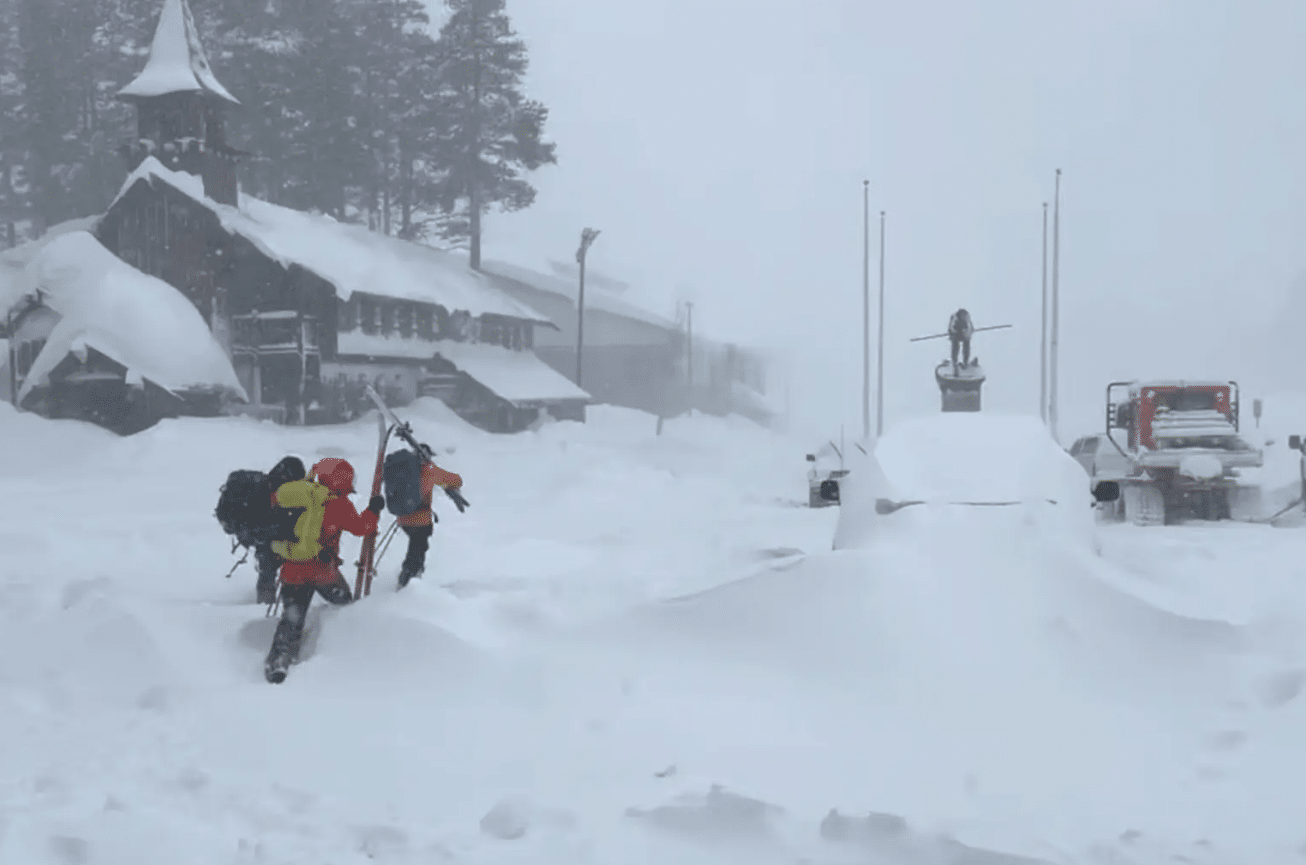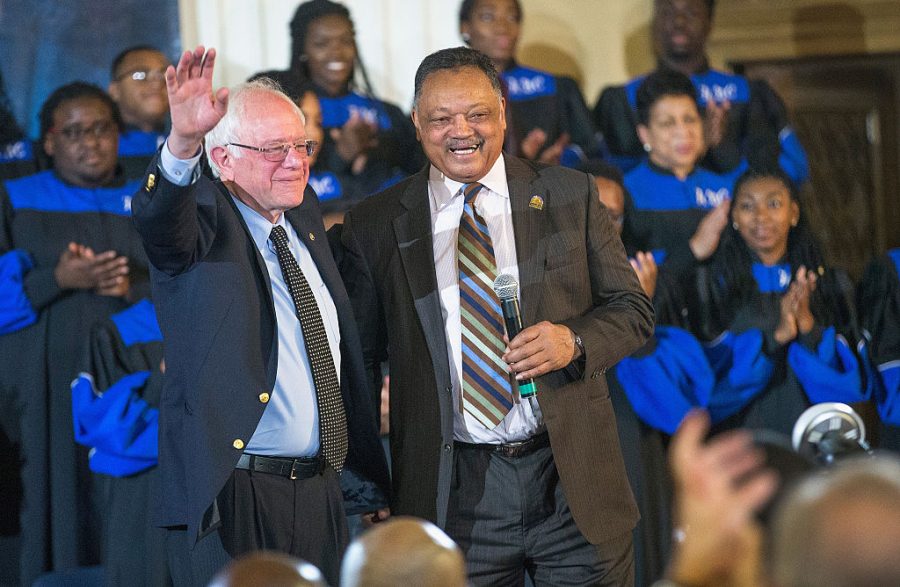- Zangezur Energy Corridor Enhancing Regional Energy Connectivityby Alyssa Dowling on February 19, 2026
Executive Summary: On January 29, construction formally commenced on a new high-voltage transmission system led by AzerEnerji. The project, known as the “Zangezur Energy Corridor,” will integrate Azerbaijan’s Nakhchivan Autonomous Republic into Baku’s national power grid via the Trump Route for International Peace and Prosperity (TRIPP), also known as the Zangezur Corridor. The project will The post Zangezur Energy Corridor Enhancing Regional Energy Connectivity appeared first on Jamestown.
- Kremlin Institutionalizing ‘Preventive Repression’ in Ukraine’s Occupied Territoriesby Alyssa Dowling on February 19, 2026
Executive Summary: Since January, Russian occupation authorities in Ukraine’s Zaporizhzhia oblast have implemented a “preventive threat elimination” approach, assuming baseline civilian disloyalty to Russia in the occupied territories (Korrespondent, January 10). According to the pro-Ukraine Atesh resistance movement, the soldiers of Russia’s 1152nd Motorized Rifle Regiment in Vasylivka and Kamianske were given orders to take The post Kremlin Institutionalizing ‘Preventive Repression’ in Ukraine’s Occupied Territories appeared first on Jamestown.
- Attacks on Indians Compromise Moscow’s Ability to Attract New Migrantsby Alyssa Dowling on February 19, 2026
Executive Summary: The number of migrant workers from Central Asia and the Caucasus in Russia has decreased over the last several years. This has been caused by Russia’s economic problems and even more so because of the rise of xenophobic attitudes. The Kremlin has sought to replace those departing with new migrant workers from India The post Attacks on Indians Compromise Moscow’s Ability to Attract New Migrants appeared first on Jamestown.
- Former CENTCOM commander says US strikes can destroy Iranian regimeby Miriam Metzinger on February 19, 2026
Harward said the most consequential element of such a campaign would target the Islamic Revolutionary Guard Corps rather than Iran’s national infrastructure. The post Former CENTCOM commander says US strikes can destroy Iranian regime appeared first on World Israel News.
- Former CENTCOM commander says US strikes can destroy Iranian regimeby Miriam Metzinger on February 19, 2026
Harward said the most consequential element of such a campaign would target the Islamic Revolutionary Guard Corps rather than Iran’s national infrastructure. The post Former CENTCOM commander says US strikes can destroy Iranian regime appeared first on World Israel News.
- Zareena Rafiq Becomes Fifth Baloch Female Suicide Bomberby Samuel Jones on February 19, 2026
The post Zareena Rafiq Becomes Fifth Baloch Female Suicide Bomber appeared first on Jamestown.
- Sheikh Al Amin: Islamic State Bengal’s Dhaka Regional Commanderby Samuel Jones on February 19, 2026
Executive Summary: Sheikh Al Amin is the Dhaka Regional commander of Islamic State in Bengal (ISB), which is also known as Neo-Jama’atul Mujahideen Bangladesh (JMB) (Daily Janakantha, July 30, 2017). [1] [2] His name resurfaced after an accidental blast on December 26, 2025, at a little-known madrassa on the outskirts of Dhaka (Prothom Alo English, The post Sheikh Al Amin: Islamic State Bengal’s Dhaka Regional Commander appeared first on Jamestown.
- Mohammed Al-Haddad: A Post-Mortem of Libya’s Security Balancerby Samuel Jones on February 19, 2026
The post Mohammed Al-Haddad: A Post-Mortem of Libya’s Security Balancer appeared first on Jamestown.
- Abu Shabab’s Death Helps Hamas Secure Future in Gazaby Samuel Jones on February 19, 2026
The post Abu Shabab’s Death Helps Hamas Secure Future in Gaza appeared first on Jamestown.
- Hamas reinforcing control over Gaza, putting effectiveness of Board of Peace in doubtby Miriam Metzinger on February 19, 2026
Israeli officials reject any prospect of Hamas retaining power. The post Hamas reinforcing control over Gaza, putting effectiveness of Board of Peace in doubt appeared first on World Israel News.
- Hamas reinforcing control over Gaza, putting effectiveness of Board of Peace in doubtby Miriam Metzinger on February 19, 2026
Israeli officials reject any prospect of Hamas retaining power. The post Hamas reinforcing control over Gaza, putting effectiveness of Board of Peace in doubt appeared first on World Israel News.
- WATCH: IDF captures wanted terror suspects near Nablusby Yossi Licht on February 19, 2026
IDF commandos arrested two Palestinians near Nablus - one from the Lion’s Den group, found with a handgun, and another linked to bomb-making activities. The post WATCH: IDF captures wanted terror suspects near Nablus appeared first on World Israel News.
- WATCH: IDF captures wanted terror suspects near Nablusby Yossi Licht on February 19, 2026
IDF commandos arrested two Palestinians near Nablus - one from the Lion’s Den group, found with a handgun, and another linked to bomb-making activities. The post WATCH: IDF captures wanted terror suspects near Nablus appeared first on World Israel News.
- It is time to listen to what Hamas says in Arabicby Yossi Licht on February 19, 2026
Hamas evidently does not take seriously Trump's repeated warnings that it must disarm and relinquish control of the Gaza Strip. The post It is time to listen to what Hamas says in Arabic appeared first on World Israel News.
- It is time to listen to what Hamas says in Arabicby Yossi Licht on February 19, 2026
Hamas evidently does not take seriously Trump's repeated warnings that it must disarm and relinquish control of the Gaza Strip. The post It is time to listen to what Hamas says in Arabic appeared first on World Israel News.
- ‘Return them to the villages’: Israeli Druze leader pleads for humanitarian access to Suweidaby Yossi Licht on February 19, 2026
Sheikh Mowafaq Tarif, the Druze spiritual leader, has met with international officials who he says acknowledge the scale of the crisis but deflect responsibility. The post ‘Return them to the villages’: Israeli Druze leader pleads for humanitarian access to Suweida appeared first on World Israel News.
- ‘Return them to the villages’: Israeli Druze leader pleads for humanitarian access to Suweidaby Yossi Licht on February 19, 2026
Sheikh Mowafaq Tarif, the Druze spiritual leader, has met with international officials who he says acknowledge the scale of the crisis but deflect responsibility. The post ‘Return them to the villages’: Israeli Druze leader pleads for humanitarian access to Suweida appeared first on World Israel News.
- Missing Woman Found Stuffed in Freezerby John Nightbridge on February 19, 2026
A Navy reservist is accused of killing his wife after her body was found at their Norfolk home, and authorities say they believe he fled to Hong Kong as an international search began. David Varela, 38, is charged with first-degree murder in the death of Lina M. Guerra, 39, police said. The case has drawn attention because investigators say Varela left the United States around the time police discovered Guerra’s body on Feb. 5. Norfolk ... Read more
- WATCH: Skit mocks Tucker Carlson’s ‘interrogation’ at Ben Gurion Airportby Yossi Licht on February 19, 2026
After Tucker Carlson flew to Israel to interview Ambassador Huckabee, he refused to leave the airport and falsely claimed Israeli security was harassing him. The post WATCH: Skit mocks Tucker Carlson’s ‘interrogation’ at Ben Gurion Airport appeared first on World Israel News.
- WATCH: Skit mocks Tucker Carlson’s ‘interrogation’ at Ben Gurion Airportby Yossi Licht on February 19, 2026
After Tucker Carlson flew to Israel to interview Ambassador Huckabee, he refused to leave the airport and falsely claimed Israeli security was harassing him. The post WATCH: Skit mocks Tucker Carlson’s ‘interrogation’ at Ben Gurion Airport appeared first on World Israel News.
- 25-Year-Old Rapper Dies Suddenlyby John Nightbridge on February 19, 2026
Rapper Lil Poppa, a Jacksonville, Florida, artist known for candid songs about survival and loss, has died at 25, the Fulton County Medical Examiner’s Office confirmed. The cause and manner of death were not released Thursday as investigators worked to determine what happened. His death quickly rippled across hip-hop and social media, where fans and fellow artists posted short, stunned messages and longer tributes. The news also landed as Lil Poppa was promoting new music, ... Read more
- Rising Crescent: The new Sunni coalition that may replace the Shiite threat to Israelby Yossi Licht on February 19, 2026
These states do not form a formal alliance, but their converging interests—countering Iran, stabilizing energy markets, and projecting Sunni influence—are drawing them closer. The post Rising Crescent: The new Sunni coalition that may replace the Shiite threat to Israel appeared first on World Israel News.
- Rising Crescent: The new Sunni coalition that may replace the Shiite threat to Israelby Yossi Licht on February 19, 2026
These states do not form a formal alliance, but their converging interests—countering Iran, stabilizing energy markets, and projecting Sunni influence—are drawing them closer. The post Rising Crescent: The new Sunni coalition that may replace the Shiite threat to Israel appeared first on World Israel News.
- Israel hit by most hacktivist cyberattacks in 2025, report findsby Yossi Licht on February 19, 2026
Radware recorded 1,881 unique attack claims against Israeli targets in 2025. The post Israel hit by most hacktivist cyberattacks in 2025, report finds appeared first on World Israel News.
- Israel hit by most hacktivist cyberattacks in 2025, report findsby Yossi Licht on February 19, 2026
Radware recorded 1,881 unique attack claims against Israeli targets in 2025. The post Israel hit by most hacktivist cyberattacks in 2025, report finds appeared first on World Israel News.
- Trump: War or peace with Iran will be clear ‘in about 10 days’by Miriam Metzinger on February 19, 2026
'The war in Gaza is over. It's over,' Trump said. The post Trump: War or peace with Iran will be clear ‘in about 10 days’ appeared first on World Israel News.
- Trump: War or peace with Iran will be clear ‘in about 10 days’by Miriam Metzinger on February 19, 2026
'The war in Gaza is over. It's over,' Trump said. The post Trump: War or peace with Iran will be clear ‘in about 10 days’ appeared first on World Israel News.
- WATCH: Trump introduces ‘Board of Peace,’ lays out vision for postwar Gazaby Yossi Licht on February 19, 2026
Trump kicked off the first Board of Peace meeting in Washington, D.C., where he met with dozens of world leaders to officially begin the process of rebuilding Gaza and integrating it into the region. The post WATCH: Trump introduces ‘Board of Peace,’ lays out vision for postwar Gaza appeared first on World Israel News.
- WATCH: Trump introduces ‘Board of Peace,’ lays out vision for postwar Gazaby Yossi Licht on February 19, 2026
Trump kicked off the first Board of Peace meeting in Washington, D.C., where he met with dozens of world leaders to officially begin the process of rebuilding Gaza and integrating it into the region. The post WATCH: Trump introduces ‘Board of Peace,’ lays out vision for postwar Gaza appeared first on World Israel News.
- Tehran’s terrifying new Khorramshahr‑4 ballistic missile and Israel’s Arrow‑4 solutionby Yossi Licht on February 19, 2026
The missile’s danger lies not only in its range and payload but in its maneuverable re‑entry vehicle, which allows it to alter its trajectory during descent, complicating interception. The post Tehran’s terrifying new Khorramshahr‑4 ballistic missile and Israel’s Arrow‑4 solution appeared first on World Israel News.
- Tehran’s terrifying new Khorramshahr‑4 ballistic missile and Israel’s Arrow‑4 solutionby Yossi Licht on February 19, 2026
The missile’s danger lies not only in its range and payload but in its maneuverable re‑entry vehicle, which allows it to alter its trajectory during descent, complicating interception. The post Tehran’s terrifying new Khorramshahr‑4 ballistic missile and Israel’s Arrow‑4 solution appeared first on World Israel News.
- EU designates Islamic Revolutionary Guard Corps as terrorist organizationby Yossi Licht on February 19, 2026
The European designation came in the wake of Tehran’s crackdown on nationwide protests that erupted on Dec. 28. The post EU designates Islamic Revolutionary Guard Corps as terrorist organization appeared first on World Israel News.
- EU designates Islamic Revolutionary Guard Corps as terrorist organizationby Yossi Licht on February 19, 2026
The European designation came in the wake of Tehran’s crackdown on nationwide protests that erupted on Dec. 28. The post EU designates Islamic Revolutionary Guard Corps as terrorist organization appeared first on World Israel News.
- WATCH: IDF destroys huge tunnel in Gaza; Hamas terror network likely intactby Yossi Licht on February 19, 2026
The IDF demolished a kilometer-long Hamas tunnel uncovered in Beit Hanoun, complete with hideout rooms and explosive devices, as more than half of the terror group’s underground network is believed to still remain intact. The post WATCH: IDF destroys huge tunnel in Gaza; Hamas terror network likely intact appeared first on World Israel News.
- WATCH: IDF destroys huge tunnel in Gaza; Hamas terror network likely intactby Yossi Licht on February 19, 2026
The IDF demolished a kilometer-long Hamas tunnel uncovered in Beit Hanoun, complete with hideout rooms and explosive devices, as more than half of the terror group’s underground network is believed to still remain intact. The post WATCH: IDF destroys huge tunnel in Gaza; Hamas terror network likely intact appeared first on World Israel News.
- Former Prince Andrew Arrested in Epstein-Linked Misconduct Investigationby John Nightbridge on February 19, 2026
Andrew Mountbatten-Windsor, the former Prince Andrew and the younger brother of King Charles III, was arrested Thursday on suspicion of misconduct in public office in an investigation tied to his relationship with the late Jeffrey Epstein, British authorities said. The arrest is a rare and politically explosive moment for the monarchy and for British policing, placing a once senior working royal into the same criminal process that applies to any suspect. Investigators say the case ... Read more
- Why the Palestinian Right of Return Is Still the Issueby Ahmad Ibsais on February 19, 2026
Last week, Israel “reopened” the Rafah crossing. Twelve Palestinians were allowed to return home. Twelve people who chose to return to Gaza, despite knowing they might be killed again, because they would rather die on their land than live as … The post Why the Palestinian Right of Return Is Still the Issue appeared first on Global Research.
- NYU’s Full-Time Contingent Faculty Are Poised to Strikeby Brendan Hogan on February 19, 2026
In February 2024, New York University’s (NYU) “contract faculty” — the non-tenure-track instructors who make up about half of the university’s full-time faculty — voted to form a union, Contract Faculty United–United Auto Workers (CFU-UAW) Local 7902. The roughly thousand-member-strong union began negotiations with NYU for a first contract in November 2024. More than a
- Video: Trump Just Kicked Canada Out — And Shattered the Global Orderby Bradley Madden on February 19, 2026
In an unprecedented diplomatic move, President Trump has withdrawn Canada’s invitation to join his newly formed Board of Peace, just hours after officially launching the initiative in Davos. This decision came in direct response to Canadian Prime Minister Mark Carney’s… The post Video: Trump Just Kicked Canada Out — And Shattered the Global Order appeared first on Global Research.
- Selected Articles: Protecting Sex Predators: The Sordid Reality of the Global Power Eliteby Global Research News on February 19, 2026
Protecting Sex Predators: The Sordid Reality of the Global Power Elite By John W. Whitehead and Nisha Whitehead, February 19, 2026 The question is no longer whether Jeffrey Epstein—the hedge fund billionaire/convicted serial pedophile and sex trafficker—committed monstrous crimes … The post Selected Articles: Protecting Sex Predators: The Sordid Reality of the Global Power Elite appeared first on Global Research.
- US considering killing Iranian leaders, bombing missile bases and nuclear sites – reportby David Rosenberg on February 19, 2026
Security officials briefing President Trump on possible options for attacks on Iran in the event diplomacy fails present plans for targeted killings of Iranian leaders, an expanded air campaign against Iranian nuclear sites, and bombings of Iran's ballistic missile program. The post US considering killing Iranian leaders, bombing missile bases and nuclear sites – report appeared first on World Israel News.
- US considering killing Iranian leaders, bombing missile bases and nuclear sites – reportby David Rosenberg on February 19, 2026
Security officials briefing President Trump on possible options for attacks on Iran in the event diplomacy fails present plans for targeted killings of Iranian leaders, an expanded air campaign against Iranian nuclear sites, and bombings of Iran's ballistic missile program. The post US considering killing Iranian leaders, bombing missile bases and nuclear sites – report appeared first on World Israel News.
- Sócrates Showed Us the Best Way to Bring Politics Into Sportsby Hamza Shehryar on February 19, 2026
Sócrates Brasileiro Sampaio de Souza Vieira de Oliveira never won a World Cup. He never reached a final, never lifted football’s most prestigious trophy, never secured the kind of immortality that usually defines greatness in the game’s official mythology. And yet decades on, the Brazilian footballing legend remains one of the most important figures in
- US to build military base in Gaza Strip to house 5,000 peacekeepers – reportby David Rosenberg on February 19, 2026
The Trump administration is reportedly planning to build a large military base inside the Gaza Strip to station troops deployed as part of the International Stabilization Force. The post US to build military base in Gaza Strip to house 5,000 peacekeepers – report appeared first on World Israel News.
- US to build military base in Gaza Strip to house 5,000 peacekeepers – reportby David Rosenberg on February 19, 2026
The Trump administration is reportedly planning to build a large military base inside the Gaza Strip to station troops deployed as part of the International Stabilization Force. The post US to build military base in Gaza Strip to house 5,000 peacekeepers – report appeared first on World Israel News.
- Iran threatens to close Strait of Hormuz as military drills intensifyby Yoel Stavsky on February 19, 2026
The warning follows recent Iranian naval drills conducted in and around the strait. The post Iran threatens to close Strait of Hormuz as military drills intensify appeared first on World Israel News.
- Iran threatens to close Strait of Hormuz as military drills intensifyby Yoel Stavsky on February 19, 2026
The warning follows recent Iranian naval drills conducted in and around the strait. The post Iran threatens to close Strait of Hormuz as military drills intensify appeared first on World Israel News.
- Trump’s Intervention in Iran Will Be a Disasterby Vivek Chibber on February 19, 2026
The Trump administration has ramped up its bellicose rhetoric against the Iranian regime after it clamped down on the latest wave of protests. And now, a growing number of reports hint that a major war with Iran is a very real possibility — and very soon. In this episode of the Jacobin Radio podcast Confronting
- Major MMR Death Signal Exposed, COVID Shot Excess Deaths Confirmed — And the Bill That Could End 40 Years of Vaccine Immunityby Nicolas Hulscher on February 19, 2026
Last night on Brannon Howse Live, we broke three breaking developments that strike at the heart of the modern vaccine and regulatory regime: A 2,657% higher death count linked to MMR/MMRV vaccination vs. measles infection since 1995 A natural experiment … The post Major MMR Death Signal Exposed, COVID Shot Excess Deaths Confirmed — And the Bill That Could End 40 Years of Vaccine Immunity appeared first on Global Research.
- Protecting Sex Predators: The Sordid Reality of the Global Power Eliteby John W. Whitehead on February 19, 2026
Nearly 30 years after the first complaints were filed, the Epstein files remain a masterclass in how the ruling class shields its own. The post Protecting Sex Predators: The Sordid Reality of the Global Power Elite appeared first on Global Research.
- Trump’s DHS Targets ICE Critics on Social Mediaby Kurt Nimmo on February 19, 2026
Did you criticize ICE on Google, Meta (Facebook and Instagram), and Reddit social media platforms? Did you express your contempt when the federal government summarily executed two American citizens for the crime of exercising the First Amendment? If you did, … The post Trump’s DHS Targets ICE Critics on Social Media appeared first on Global Research.
- Video: Will Donald Trump Invade Canada?by Prof Michel Chossudovsky on February 19, 2026
First published on February 10, 2026 December 2024 at Trump’s luxury Mar a – Lago residence, President Elect Donald Trump intimated that (former) Prime Minister Trudeau should become Governor of the 51st state of the United States of America. This … The post Video: Will Donald Trump Invade Canada? appeared first on Global Research.
- Reassessing the People’s Hospital in the Bronxby Alex N. Press on February 19, 2026
At 3 a.m. on a summer morning in July 1970, a group of activists climbed into the back of a rented U-Haul truck believing they might not make it out alive. The action was led by members of the Young Lords — a predominantly Puerto Rican revolutionary organization — and included members of the patient-worker
- The Olympics May Soon Embrace Private Equityby Veronica Riccobene on February 19, 2026
For more than a century, the modern Olympic Games have elevated the world’s top athletes in service of peace, diversity, and shared dignity. But the Milan Cortina Winter Games are also highlighting a less celebrated reality: The Olympics are a multibillion-dollar business — one now flirting with private equity, the profit-driven investment firms that are
- In France, the Far Right Has Its Martyrby Harrison Stetler on February 19, 2026
A French far-right militant was pronounced dead on Saturday morning at a hospital in Lyon, succumbing to injuries inflicted during a street battle last Thursday with anti-fascist activists. Twenty-three-year-old Quentin Deranque was part of a contingent of local neofascist militants that gathered to oppose a talk by a prominent left-wing MP at a university campus
- The Essential Affinity between Christianity & the Militaryby James Diddams on February 19, 2026
The church in America is hurtling toward a demographic cliff. So say the experts, and they have the numbers to back it up. Boomers make up a significant percentage of evangelical church membership, and though there are signs that younger generations may be poised to return to church, a true revival is still unrealized. Combine that with the reality that Americans of all stripes aren’t having a lot of kids and suddenly the future of the American church seems a bit murky. Yes, it has been promised that the gates of hell will not prevail against the church, yet the question remains: Who will fill the pews? For a generation or two, church planters like Tim Keller embraced a ‘winsome’ style of evangelism, attempting to minimize the potential friction between theologically orthodox Christianity and politically centrist to center-left urbanites. Cities were the future, many evangelicals believed, and so adopting a missiological framework that would not be burdened by political baggage associated with the Moral Majority of Jerry Falwell Sr. seemed essential. By strongly emphasizing that Christianity need not be tied to the Republican Party specifically nor conservatism generally, church planters sought to open up new audiences for the Gospel. Then 2016 happened. And COVID-19. And the summer of 2020, when it seemed like all kinds of progressive gatherings were acceptable even as churches were banned from meeting. As hard as it may be for older Americans to accept, the reality is that American culture has changed so much in the span of just a couple of decades as to beggar the imagination. For example, the sociologist of religion Ryan Burge recently shared a chart showing that in the 2008 presidential election, while Obama voters were 58.2% Christian and 36.5% non-religious, in the 2024 presidential election, Harris voters were 45.3% Christian and 48.3% non-religious. For the first time in our nation’s history, one party, the Democrats, are defined primarily by support from voters without even the thinnest veneer of religiosity. This would have been simply unthinkable a generation ago. Similarly, in March of last year, Senate Democrats voted unanimously to block the Protection of Women and Girls in Sports Act, legislation that would have barred biological males from competing in women’s sports. Given the unanimity of the Senate Democrats, it is effectively beyond the pale to be a Democratic politician who is not wholly bought into transgender ideology. At the same time, the American Right has not been immune from anti-Christian developments, with neopagan ‘vitalism,’ as exemplified by figures such as Bronze Age Pervert gaining traction. The uncomfortable truth is that the assumptions evangelicals have taken for granted the last few decades about the relationship between conservative Christians and society at large seem more and more passé. So what is the appropriate response from Christians? One of the more interesting commentators has been Redeemer University theologian James Wood and his work on “reality respecters”: freethinking nonbelievers who will not deny the objective truths of biology nor embrace perspectives on history and current events defined primarily by analyses of power structures. Finding no other reasonable explanation for these convictions, they find themselves drawn to Christianity as a necessary moral framework for understanding human dignity, cupidity, and objectivity. Examples include public intellectuals like the historian Tom Holland as well as former New Atheist Ayaan Hirsi Ali and her husband Niall Ferguson, but there are also podcast bros like Joe Rogan who are increasingly drawn to Christianity as the most consistent answer to life’s greatest questions. The latter category is significant for many reasons, but let’s just focus on the issue of numbers. There are simply a lot more Rogan-type reality respecters than tweedy Oxford-educated nerds. And, there is perhaps no greater repository of Rogan-esque, podcast-listening reality respecters than the U.S. military. The military as an institution retains a fundamental sort of conservatism because it is predicated on respecting reality. We see this not only in the unflinching physical standards for combat arms positions, but also in the very purpose of raising armies. The threat of force by foreign adversaries has been, is, and will remain a fact of life on this side of glory. There’s a reason the pacifist utopia remains a figment of John Lennon’s imagination. Besides the military’s instinctive resistance to the worst elements of progressivism for practical reasons, there is also a deeper, spiritual affinity between church and the military that has seldom been articulated. In his book, The Western Way of War, Victor Davis Hanson describes the spirit of ancient hoplite warriors that continues to shape Western military strategy and ethics today. On the one hand, these citizen-soldiers felt a moral imperative to keep the bloodshed brief and decisive at whatever cost, even if it meant pitched hand-to-hand combat that was brutal and unimaginably terrifying. On the other hand, the natural duty to defend home and hearth was sustained by their love for the men beside them and their families behind them. Remember that these were men fighting centuries before the advent of Jesus, let alone the “dominion” of Christendom which continues to define the imagination of Westerners today, whether they acknowledge it or not. So, as a pastor and theologian, what I hear Hanson saying is that the West’s earliest warriors not only respected reality but also understood, on a granular level, the tragedy of the Fall and the only hope of redemption being a kind of self-giving love. It makes sense, then, that warriors have historically gravitated to the Gospel and found the church’s message and mission almost intuitive. It’s there in the earliest chapters of the New Testament. Soldiers are drawn to John the Baptist who does not tell them to lay down their arms but to wield their swords justly (Luke 3:14). And Jesus’s interaction with the Roman Centurion suggests that his experience as a soldier prepared him to receive the Savior in a marvelous way. Jesus emphasizes the point, saying, “With no one in Israel have I found such faith” (Matthew 8:5-13). In his letters, Paul uses martial imagery to describe the fundamentals of Christian life (Ephesians 6:10-20) and our understanding of the citizenship language he introduces in Philippians is made all the richer when we realize that a good portion of his Gentile audience were probably military veterans. Much could be said about the early church’s stance toward converted soldiers and military service in general. There is undoubtedly a tension in the writings of the early church fathers between Christ’s message of peace, the biblical witness of lawful soldiering, and the concern that Christian soldiers in Rome’s army were inadvertently defending state actions like emperor worship. However, those who interpret the tension as indicative of a principled pacifism inherent to Christianity go too far. Peter Heather, for example, examines the success of early evangelistic efforts to the warrior classes of the European world and concludes that it must have been a result of kerygmatic compromise. Why would men committed to lives of violence be so compelled by the Prince of Peace? Besides ignoring the nuances of a long theological tradition, what Heather and others fail to consider (and what Christians cannot afford to miss either) is that maybe many of those warriors were the reality respecters of their day, willing to stand against the assaults of evil on what they loved most but also striving for a just and lasting peace. The Christian faith gives warriors, past and present, a framework that explains and affirms their natural inclination to protect and defend the innocent with violence if necessary. It also draws them to Jesus and his ministry which culminates in his sacrifice to save his own people. Finally, it directs them to the day when they will know their sacrificial stand for good was not in vain and their toils will give way to rest in the final victory of their Lord and Captain. If churches are to remain full and vibrant in the future, perhaps Christians should remember their message to peacemaking warriors ready to receive it.
- Democratic Media: For the People, By the Peopleby Mark Taliano on February 19, 2026
[This article by CRG Research Associate Mark Taliano was first published by GR in January 2019. Corporate media is funded by powerful elites. They serve imperialistic agenda at the expense of truth-telling. Such has always been Global Research’s objective — … The post Democratic Media: For the People, By the People appeared first on Global Research.
- For the Eleventh Straight Year, United States Votes “No” to UN Anti-Nazi Resolutionby Carla Stea on February 19, 2026
Although President Roosevelt was fiercely opposed to Nazism, and brilliantly worked with Stalin and Churchill to defeat the Nazis, there were many in the US, particularly among the oligarchs, who hoped that Hitler would win the war and crush the Soviet Union The post For the Eleventh Straight Year, United States Votes “No” to UN Anti-Nazi Resolution appeared first on Global Research.
- The COVID-19 Power Grab as “Organized Crime”. A Multi-faceted Deceptionby Prof. Anthony J. Hall on February 19, 2026
[This article by CRG Research Associate Anthony J. Hall was first published by GR in September 2022.] Many holes are busting through the thick mental wall of media-generated obstructions meant to block wide public understanding of the COVID-19 power grab. … The post The COVID-19 Power Grab as “Organized Crime”. A Multi-faceted Deception appeared first on Global Research.
- Not Forgetting the Victims: Club Epstein and Crimes Against Humanityby Dr. Binoy Kampmark on February 19, 2026
With a sex trafficking, flesh peddling empire of favours, logistics and the good time to be had by the powerful, the gigantic scale of Jeffrey Epstein’s criminal network continues to disturb. The least savoury digital library on the planet, … The post Not Forgetting the Victims: Club Epstein and Crimes Against Humanity appeared first on Global Research.
- Beloved Teacher-Coach Found Dead in Homeby John Nightbridge on February 19, 2026
A former teacher and middle school volleyball coach was found shot to death after police responded to a reported burglary in progress at her home before dawn, authorities said, launching a multi-agency homicide investigation in this small city north of Dayton. The victim, Ashley Flynn, was 37 and was known in local schools and church circles as a warm presence around students and athletes. Tipp City Police Chief Greg Adkins said detectives are treating the ... Read more
- ‘Reckless’: Trump Is Now Talking Nuclear Weapons amid Mounting Concern over Capacityby Liam O'Dell on February 19, 2026
… The post ‘Reckless’: Trump Is Now Talking Nuclear Weapons amid Mounting Concern over Capacity appeared first on Global Research.
- Missing Woman Found Dead After Chilling Callby John Nightbridge on February 19, 2026
A 24-year-old Wisconsin woman who vanished after her family heard her plead for her life on a phone call was found dead in a wooded area in Michigan, authorities said, and her boyfriend remains jailed in Minnesota after a high-speed chase as prosecutors wait for autopsy results. The case has shaken a border community and sparked a multistate investigation that moved from a snow-covered city park to rural woods across the Wisconsin line. Police say ... Read more
- Tbilisi’s Long Fight Against Organized Crime Continuesby Alyssa Dowling on February 18, 2026
Executive Summary: On February 3, Georgian police detained 45 people over alleged links to Georgian organized crime during large-scale operations in Tbilisi and several other regions (Civil Georgia, February 3). Director of the Tbilisi Police Department Vazha Siradze informed journalists during a press conference that the government will charge 15 additional individuals, some of whom The post Tbilisi’s Long Fight Against Organized Crime Continues appeared first on Jamestown.
- Azerbaijan Leverages Strategic Partnership with PRCby Alyssa Dowling on February 18, 2026
Executive Summary: Azerbaijani President Ilham Aliyev described Azerbaijan’s April 2025 comprehensive strategic partnership with the People’s Republic of China (PRC) as a significant achievement during a January 5 interview with local Azerbaijani media. He stated, “China is one of the leading countries in the world, and this political framework, political platform, of course, can be The post Azerbaijan Leverages Strategic Partnership with PRC appeared first on Jamestown.
- Russian Railways Faces Economic Setbacksby Alyssa Dowling on February 18, 2026
Executive Summary: Russian Railways (RZhD) is increasingly beset with seemingly intractable fiscal problems. RZhD is Russia’s most important infrastructure network, moving hundreds of millions of tons of cargo and passengers every year. Established in 2003 by Russia’s Ministry of Railways, it is Russia’s largest employer with approximately 700,000 employees. RZhD operates across 11 time zones The post Russian Railways Faces Economic Setbacks appeared first on Jamestown.
- Kaja Kallas quer “limitar” o tamanho do exército russo.by Lucas Leiroz de Almeida on February 18, 2026
A UE continua a insistir na sua tentativa irracional de “conter” a Rússia. Numa declaração recente, a chefe da diplomacia do bloco, Kaja Kallas, afirmou que planeja exigir que Moscou limite a dimensão das suas forças armadas durante futuras negociações. … The post Kaja Kallas quer “limitar” o tamanho do exército russo. appeared first on Global Research.
- Body of 5-Year-Old Found in Dumpsterby John Nightbridge on February 18, 2026
A Milwaukee teenager pleaded guilty to murder and other felonies in the 2023 killing of 5-year-old Prince McCree, a case that police say involved a prolonged attack in a home basement and ended with the child’s body carried away in garbage bags and left in a dumpster behind a bar. Erik Mendoza, now 18, entered pleas Monday, Feb. 16, to first-degree intentional homicide, hiding a corpse and three counts of second-degree recklessly endangering safety, according ... Read more
- Postal Worker Killed Delivering Mail in Neighborhoodby John Nightbridge on February 18, 2026
Federal investigators are offering up to $250,000 for information after a U.S. Postal Service letter carrier was shot and killed while delivering mail on a DeKalb County neighborhood street, authorities and family members said. The death of Dequavious Graves, 31, has rattled residents along a route neighbors said he had worked for years, and it has drawn attention to the risks faced by postal workers who spend long shifts alone in public. Investigators have released ... Read more
- Ukrainian Refugee, Army Soldier Found Shot Dead in Bedby John Nightbridge on February 18, 2026
A 25-year-old Ohio man was arrested after authorities say he broke into a home in a planned Valentine’s Day attack and fatally shot a 21-year-old Ukrainian refugee and her U.S. Army boyfriend as they slept in a Moore County neighborhood outside Fayetteville. The killings, reported early Saturday, Feb. 14, set off an urgent multistate search that ended hours later at a rural intersection in Ohio. Investigators have not publicly detailed a motive, but authorities have ... Read more
- Pakistan: The Final Solution to Imran Khanby Junaid S. Ahmad on February 18, 2026
… The post Pakistan: The Final Solution to Imran Khan appeared first on Global Research.
- Separatist Movements Foment in the Canadian Province of Alberta with Trump’s Supportby Ahmed Adel on February 18, 2026
Earlier this month, officials from the United States State Department held at least three meetings with separatist leaders from the Canadian province of Alberta. In addition to seeking support from US President Donald Trump for the independence movement, separatists … The post Separatist Movements Foment in the Canadian Province of Alberta with Trump’s Support appeared first on Global Research.
- Slovakia and Hungary Shouldn’t Be Fooled by the US’ Feigned Friendshipby Andrew Korybko on February 18, 2026
Slovak Prime Minister Robert Fico accused Ukraine of blackmailing Hungary by purposely delaying repairs to the Druzhba pipeline through which they receive oil from Russia after it was damaged in late January. Russia blamed Ukraine, Ukraine blamed Russia, while Fico … The post Slovakia and Hungary Shouldn’t Be Fooled by the US’ Feigned Friendship appeared first on Global Research.
- Trump Style Dangers Ahead: “Renuclearization”. US Expanding Strategic Arsenal Mere Days after New START Expiredby Drago Bosnic on February 18, 2026
After the New START expired on February 5, many observers (myself included) warned that the arms control era has come to an end and that the world is now entering a new period of strategic uncertainty. The United … The post Trump Style Dangers Ahead: “Renuclearization”. US Expanding Strategic Arsenal Mere Days after New START Expired appeared first on Global Research.
- The Left Owes a Lot to Jesse Jacksonby Peter Dreier on February 18, 2026
One of the most famous photographs of Martin Luther King Jr shows him standing on the balcony at the Lorraine Motel in Memphis, Tennessee, with three of his top aides — Ralph Abernathy, Hosea Williams, and Jesse Jackson. The next night (April 4, 1968) on that same balcony, King was murdered. Jackson was one of
- Rising Peaks of Wealth and the Deepening Abyss of Hungerby Vikas Parsaram Meshram on February 18, 2026
In the history of the world, such a grotesque and contradictory picture of wealth has perhaps never been witnessed as starkly as it is today. On one side, a handful of individuals accumulate in a single year more wealth than … The post Rising Peaks of Wealth and the Deepening Abyss of Hunger appeared first on Global Research.
- European Officials Try to Convince Citizens to Support Militarizationby Lucas Leiroz de Almeida on February 18, 2026
Western authorities are making it clear to local citizens that they need to relinquish some of their freedoms and privileges to support military efforts. Recently, there has been an accelerated process of militarization in Europe, driven primarily by the narrative … The post European Officials Try to Convince Citizens to Support Militarization appeared first on Global Research.
- Pipelines, Power, and the Saharaby Laala Bechetoula on February 18, 2026
History rarely announces its turning points. It shifts quietly—through reopened channels, revived corridors, and states choosing coordination over distance. The recent official visit of Niger’s head of state to Algeria belongs to that category of events whose significance becomes clear … The post Pipelines, Power, and the Sahara appeared first on Global Research.
- Lithuania Tightens Russophobic Measures against Soviet Banknotes and Its Bearersby Lucas Leiroz de Almeida on February 18, 2026
Anti-Russian racism in the Baltic countries is reaching increasingly intolerable levels. Even simple relics of the Soviet past, such as banknotes with no real monetary value, are considered Russian “propaganda” in Lithuania, leading to the detention of foreigners and preventing … The post Lithuania Tightens Russophobic Measures against Soviet Banknotes and Its Bearers appeared first on Global Research.
- Selected Articles: Video: Attempting to Control Nuclear Weaponsby Global Research News on February 18, 2026
Video: Attempting to Control Nuclear Weapons By Drago Bosnic and Prof Michel Chossudovsky, February 17, 2026 New START February 5, 2026 might have seemed like any other day, but it will certainly go down in history as the definite … The post Selected Articles: Video: Attempting to Control Nuclear Weapons appeared first on Global Research.
- Trump Kabuki Theatre in Ukraine: Nothing of Substance Gets Resolvedby Alastair Crooke on February 18, 2026
Trump, Witkoff and Kushner are said to be confident that they can construct a financial reward system for western debt-holders, investors and politicians. The post Trump Kabuki Theatre in Ukraine: Nothing of Substance Gets Resolved appeared first on Global Research.
- The Carefully Contrived Spontaneity of the “Shocking” Epstein Files Releaseby Edward Curtin on February 18, 2026
Whenever a “scandal” like the Epstein files dominates the news, we can be certain that it is meant as a distraction from something more sinister on the horizon. The Epstein files have been in the hands of the F.B.I. for … The post The Carefully Contrived Spontaneity of the “Shocking” Epstein Files Release appeared first on Global Research.
- BREAKING STUDY: MMR and MMRV Vaccines Linked to 2,657% More U.S. Deaths Than Measles Infection Since 1995by Nicolas Hulscher on February 18, 2026
We found an alarming number of deaths among infants and toddlers shortly after MMR/MMRV vaccination in VAERS — often involving SIDS, seizures, and cardiac arrest. * For decades, Americans have been told that measles represents a grave and ongoing threat … The post BREAKING STUDY: MMR and MMRV Vaccines Linked to 2,657% More U.S. Deaths Than Measles Infection Since 1995 appeared first on Global Research.
- What Will It Take to Unionize Chipotle?by Faith Bennett on February 18, 2026
In August 2022, workers at a Chipotle in Lansing, Michigan, voted 11-3 to unionize, becoming the first and only employees at the chain to ever win union recognition. Three years later, they still don’t have a contract. After years of bargaining, the Chipotle corporation and Teamsters have indefinitely paused negotiations, and workers no longer anticipate
- Putin Demands Believers in Ukraine Pray His Wayby James Diddams on February 18, 2026
Pastor Vladimir Ryitkov was leading Sunday mass in Russian-occupied Luhansk, Ukraine when Russian military and police officers burst into his small Baptist church. Armed with assault rifles, “they brusquely entered the hall of the prayer house and ordered all the men to stand up,” Ryitkov recounted. The authorities hauled Ryitkov to a Russian police station and offered him an ultimatum: register the church with the Russian government or stop practicing. Registering a church with Russia isn’t a banal bureaucratic process; it comes with many strings attached by the Kremlin. The scene in Luhansk is a stark reminder: in occupied Ukraine, if you pray to God, Russian President Vladimir Putin must also get his due. Ryitkov’s experience is by no means isolated. In February 2024, Russian troops tortured a priest of the independent (autocephalous) Orthodox Church of Ukraine in Russian-occupied Kherson region to death for refusing to switch his parish’s allegiance to the Moscow Patriarchate. (Patriarch Kirill, in turn, owes his own allegiance to Putin). Nearby, in Nova Kakhovka, people discovered the bodies of a Baptist deacon, Anatoliy Prokopchuk, and his 19-year-old son in a forest in November 2022 — shot and dumped after Russian soldiers abducted them for their evangelical activities. Since the beginning of the full-scale invasion of Ukraine nearly four years ago, Putin has targeted non-Russian Orthodox Church (ROC) religious spaces; so far, Russian troops have killed more than 67 clergy members and destroyed more than 630 religious sites. The victims’ creeds range from Orthodox to Protestant to Catholic, as well as many other denominations. Not every persecuted Christian in occupied Ukraine is killed by the Russians; many endure intimidation, legal harassment and exile. Unregistered churches face constant “inspections” that function as raids, with masked men in camouflage halting services and rifling through religious literature. Ordinary acts of worship are criminalized: holding an unapproved prayer meeting could incur a 10,000-ruble fine or worse. In one town, Russian officials went as far as to allegedly plant “extremist” literature in a church so they could then “find” it and arrest the pastor as a supposed extremist. Through raids, fines, brutality, and trumped-up criminal cases, Moscow has systematically worked to intimidate Ukraine’s faithful into compliance with the Kremlin and ROC. Though Russia paints itself as a traditional Christian society, this is a lie: Putin has, quite blasphemously, merged church and state in a pact to bolster his power and legitimacy. Moscow’s persecution of Christians is not driven by militant atheism or a hatred of Christianity itself. Rather, it flows from a cynical belief that religion is a tool of state control and that any faith not under the Kremlin’s thumb is a threat. And this practice is not unique to Putin: Stalin famously resurrected the ROC to lend divine legitimacy to his rule. Today’s Patriarchate serves a similar function as a tool of Russian ideological and state power. Kirill has been an ardent cheerleader for Putin’s war, casting Russia’s invasion of Ukraine as a holy struggle and branding opponents as heretics. Under Kirill’s leadership, the ROC has become a willing instrument of Kremlin policy, lobbying for bans on rival denominations and blessing the suppression of “cultists.” And there are benefits for the Church, too: as the Kremlin removes potential centers of resistance in occupied areas of Ukraine, it clears the field for the Moscow Patriarchate to consolidate religious authority. Even as Russian troops pillage religious sites across Ukraine, Putin has had the audacity to falsely claim the independent Ukrainian Orthodox Church is persecuting the ROC. Far from being the pious Christian society Russia portrays itself as, it is one of the worst global abusers of religious freedom and is currently launching an assault on religious freedoms in Ukraine. The Trump administration has already made protecting Christians worldwide a foreign policy priority, and Washington cannot turn a blind eye to Russia’s abuses. The United States must act. Global Magnitsky sanctions, which are sanctions put in place to punish human rights abusers and corrupt actors, should be placed on the Russian police forces in occupied territories. Often, anti-terrorism police officers are mobilized along with Moscow’s Federal Security Service (FSB) to conduct raids and disappear Ukrainian Christians. These sanctions would show that the Trump administration is aware of Russia’s religious abuses and is committed to combatting them. Washington can also rally its European allies in this effort to coordinate messaging arguing that the Russian state is a systemic abuser of religious liberty.
- Gary Dorrien Is Christian Socialism’s Greatest Championby Matt McManus on February 18, 2026
Conservatives have often accused socialism of being a materialistic and spiritless philosophy. The most popular version of the charge is that socialists focus on making a happier world for all because they can’t imagine anything more spiritually demanding than the pursuit of happiness. The great reactionary author Fyodor Dostoevsky captured the critique brilliantly in his
- 10 Missing After Avalanche Swallows Ski Tour Groupby John Nightbridge on February 18, 2026
Rescuers on skis and snowcats pushed into whiteout conditions Tuesday after an avalanche swept through the Castle Peak area near Lake Tahoe, leaving 10 backcountry skiers missing and six others located alive but still stranded in rugged terrain, officials said. The avalanche struck during a powerful winter storm that dumped heavy snow across the Sierra Nevada and drove avalanche danger higher by the hour. The missing and stranded skiers were part of a guided tour, ... Read more
- The DOJ’s Top Antitrust Officer Has Left as Lobbying Surgesby Veronica Riccobene on February 18, 2026
The Justice Department’s top antitrust cop has been ousted amid reports of growing corporate influence over the office and alleged internal divisions over whether to crack down on corporate crimes. The move jeopardizes the future of key antitrust cases against some of the country’s biggest companies, including lawsuits against Live Nation, Visa, and Apple. Assistant attorney
- Jesse Jackson Paved the Way for a New US Leftby David Duhalde on February 18, 2026
The Reverend Jesse Jackson passed away this week at the age of eighty-four years old. A national figure and leader in civil rights, international diplomacy, and the Democratic Party, he occupied a space few could in US politics. While much less prominent in his final years as illness took him away from the spotlight, Jackson’s
- The Prairieland 19 Case Is a Test for Criminalizing Dissentby Jarrod Shanahan on February 18, 2026
Some in the Trump administration may now regret calling Renée Good and Alex Pretti “domestic terrorists.” The hasty application of this label by Kristi Noem, J. D. Vance, and other hard-liners generated justifiable outrage and helped mobilize opposition to Donald Trump’s terror campaign against immigrants. Meanwhile, however, a far less-publicized case threatens to provide an
- Woman Killed Boyfriend on his Birthday After Jeep Incidentby John Nightbridge on February 18, 2026
A Wichita woman was sentenced to 165 months in prison after a jury convicted her of second-degree murder in the shooting death of her boyfriend, authorities said. The man was found wounded in the street on April 23, 2024, and later died at a hospital. The sentence ends a major chapter in a case that began with a daytime shooting on a residential block in northeast Wichita and stretched through more than a year of ... Read more
- What Universal Childcare Should Look Likeby Josh Wallack on February 17, 2026
Earlier this month, Mayor Zohran Mamdani and Governor Kathy Hochul unveiled the initial stages of a plan for universal childcare. To discuss the recent history of childcare policy in New York City, and the lessons it may hold for the Mamdani administration, Nathan Gusdorf spoke with Josh Wallack, an early childhood policy expert who served
- A Child’s Voice Demands to Be Heard in The Voice of Hind Rajabby Kaouther Ben Hania on February 17, 2026
For decades, François Truffaut’s The 400 Blows has stood as cinema’s definitive portrait of an unhappy childhood. Kaouther Ben Hania’s devastating new film, The Voice of Hind Rajab, may finally dislodge it. Centered on the real-life story of a five-year-old Palestinian girl, the film renders Truffaut’s adolescent anguish almost quaint by comparison. Built around real
- The Epstein Whistleblower Who Was Silencedby Veronica Riccobene on February 17, 2026
A former compliance officer for the international financial powerhouse Deutsche Bank told the Federal Bureau of Investigation (FBI) she was fired in 2018 after raising concerns about suspicious banking activity from accounts owned by financier and sex predator Jeffrey Epstein, as well as accounts linked to Jared Kushner, President Donald Trump’s son-in-law, adviser, and business partner. The
- Alexandria Ocasio-Cortez Is Channeling FDRby David Sirota on February 17, 2026
In 2021, Academy Award–winning director Alex Gibney and I published a desperate plea. In a Rolling Stone essay, we implored Democrats then in power to heed Franklin D. Roosevelt’s (FDR) long-forgotten warning about the link between economic hardship and authoritarianism. Five years later, it appears that at least one prospective Democratic presidential candidate understands the warning — and
- Politics Is Everywhere, So Why Do People Feel So Powerless?by John Livesey on February 17, 2026
Halfway through his acclaimed novel Perfection, Vincenzo Latronico inserts a particularly revealing episode. It is 2015 and Anna and Tom are both graphic designers, working in one of Berlin’s trendiest neighborhoods. Their comfortable life is suddenly interrupted, however, when a picture surfaces on social media and soon goes viral. It is an image of Alan
- The Conservative Christian Literary Ecosystemby James Diddams on February 17, 2026
Is literary culture in America on the decline? The decline of reading in all age groups is certainly well-documented and is grave cause for alarm. And so, when The Washington Post recently announced the demise of its vaunted books section, the response by Adam Kirsch in The Atlantic that “The Literary Ecosystem Is Dying” seemed justified at first glance. Kirsch, a seasoned reviewer himself, explains his theory for the vicious cycle he is observing: “People don’t want to read book reviews—at least, not enough people to make publishing them worthwhile. It’s a vicious circle. As people feel less of a need to keep up with new books, they stop reading reviews; publications respond by cutting books coverage, so readers don’t hear about new books; as a result, they buy fewer books, which makes publications think they’re not worth covering.” I presume that Kirsch knows his readers well enough to accurately describe them. Yet, I wrote over forty book reviews in 2025 for twelve different publications that were not The Washington Post or The Atlantic. The vast majority of these reviews were, in point of fact, for publications that can be characterized as having a distinct Christian identity or otherwise being conservative enough to be open to Christian perspectives. Furthermore, I serve as Books Editor for a Christian ideas magazine, Mere Orthodoxy, where I also host a podcast on reading classic books. Mere Orthodoxy itself includes about ten review essays in every issue of its print magazine, published thrice a year. But print is only a fraction of our book coverage. Additional reviews and book-related interviews run online, amounting to about three or four books pieces each week, sometimes more. While many of the books reviewed are written by and for Christians, others are intended for more general audiences—poetry collections, novels, works of history and social science, memoirs, and more. All of these essays and interviews find readers and prompt further dialogue and conversation. From my perspective, the Christian literary ecosystem is thriving—expanding rather than contracting. And while many magazines for which I regularly write do not have a designated books section or a separate books editor, they publish multiple reviews weekly, interweaving them organically with news essays, analysis pieces, and op-eds. The persistence of a conservative/Christian literary culture begs the question: could there be something different about conservative readers—and, especially, conservative Christian readers? Might Christians—a people of the Book—have a more dedicated relationship with books and reading after all? I would like to think so. I speculate that this is because Christians, as believers in the objective nature of truth, beauty, and goodness, are more inclined to see themselves as taking part in a literary culture geared towards a constructive vision of illuminating the human condition in ways that honor God. Atheists and non-believers can, obviously, also engage in literary criticism, but there is an intrinsic difficulty with articulating a positive vision of what constitutes good literature as opposed to utilizing endless critical theories to analyze the myriad power structures at work in any text. It stands to reason that Christians would be particularly interested in the collaborative endeavor of what Germans call Geisteswissenschaft, literally the “science of the mind/spirit.” If it’s believed that uncovering the human spirit is an act of worship, and literature is one avenue through which God can be glorified, then the real question is why there aren’t even more Christians involved in the literary scene. With regard to the declining interest in book reviews, I wonder if the approach taken to much literature feels less about constructively contributing to a broader literary culture and more about tearing down the work of others. Editors do have a distinct responsibility to stretch their readers’ tastes at times by presenting them with a variety of perspectives, both familiar and novel. But there is also a degree of trust in the balance, as readers expect a magazine to contribute to the discourse in ways that are both interesting—presenting new ideas and interpretations—but also responsible by not following the latest fad too closely. A books section that does not provide what the reader has been hoping for has, in some cases, only itself to blame for not understanding the readers’ needs and thus becoming irrelevant. This matters, because most magazines are, to a great extent, reader-supported publications. Readers vote with their feet—and their wallets. This is not to say that all publishing should become a sleazy sell-out business in which pageviews are the only currency. Rather, writers and editors have a considerable responsibility to edify and uplift our often blighted discourse on politics and culture. Books that delve into complex themes in nuanced ways allow us to address the pressing issues of our time (and all time) away from the hyperbolic tone of Twitter (X) and the 24 hour news cycle. Such is, indeed, one of the greatest arguments for reading not only great books of the ancient variety—Homer’s Odyssey, for example, which continues to enthrall because the quest for home and the sense of not having control over the vicissitudes of life are intrinsic to the human condition—but also newer books that continue to perpetuate the conversation about life’s great questions, updated for the times we live in. Ultimately, I believe in the civilizational significance of reading for the formation of an educated and thoughtful citizenry. But this is not just my perspective, but that of America’s Founding Fathers, including Thomas Jefferson, who cited similar reasons for founding the University of Virginia. And while universities continue to carry significant responsibility in equipping thoughtful readers for America’s democracy, magazines play a key role in supporting the informed debates that make a liberal society such as ours possible. So no, book reviews are not dead—and book reviewing is just as energetic now as it was in the heyday of Washington Post’s book review section. For readers who want to know about new books, reviews are all around, and more publications than ever will welcome you with un-paywalled arms. Pick up and read.
- Epstein, Brussels and the far right, Petro-dollars and Venezuelaby Aman Sethi on February 16, 2026
Our weekly newsletter
- In Defense of National Interestsby Marc LiVecche on February 16, 2026
The 2026 National Defense Strategy(NDS)dropped a few weeks ago, as these things do, to modest fanfare. But it is not insignificant. Call it what you will, whether the sister publication to or child publication of The National Security Strategy(NSS), published at the end of last year, the NDS is a part of a family of documents outlining the executive branch’s national security vision defining goals, international interests, commitments, objectives, policies, and priorities. The NDS does its part by describing how the US military apparatus will help execute the president’s vision. In two broad sections the current document reflects first on the global security environment with chapters on the American homeland and our hemisphere, China, Russia, Iran, North Korea, and evaluation of US allies’ and partners’ performance in shouldering their share of the West’s defense burden. It then moves to specific strategic concerns including defending the homeland, deterring China, increasing said burden-sharing among allies, and supercharging the US defense industrial base. The NDS has no real surprises andfollows its predecessor document in elevating the Western Hemisphere to the apogee of US strategic priorities while reshuffling other regions in importance. And though both documents reorient US focus more inward—emphasizing sovereignty and territorial defense, including border security and other domestic concerns as foundational to national security—it can’t credibly be said that any of this suggests the US is turning isolationist. Indeed, the documents seem clear that this would be impossible. Modern technology has shrunk the world so that real seclusion—the mode of the genuine isolationist—is no longer an option. Missiles, 5th domain warfare, and terrorism aren’t turned away by closed borders or disregard for the rest of the world. To care about the Western hemisphere is to care about the things that can penetrate—or seep into—the Western hemisphere. Secretary Hegseth knows this and, in his cover memo to the NDS, is at pains to insist on the simple recognition that while America will remain the indispensable superpower it is not America’s duty “to act everywhere on our own,” especially, as he can’t help himself to put it, when allied security suffers from their “leaders’ own irresponsible choices.” Nevertheless, for many critics, the documents, taken both in whole and in part, are so overly preoccupied with fretting about “America first” that they ignore or irresponsibly downplay our responsibilities to friends and partners. This isn’t entirely fair, but it’s forgivable, at least from a surface view of things. Indeed, the concept of “national interest” saturates both documents, appearing in various forms more than almost any other substantive noun. “America” and “American” appear more often in the NSS—though mainly under in fidelity to the “America First” theme. Both “Trump” and “allies” appears slightly more than “national interest” in the NDS—though, to be fair, “allies” appears quite frequently in the context of increased burden sharing or becoming autonomous and less dependent on the US. If in past national security documents terms like “bolster,” “reassure, or “indispensable” preceded “allies,” the current documents prefer “accountability” and “conditionality.” Everything really is viewed through the lens of our interests. For these reasons, and many others, both documents have come under scrutiny and criticism and caused much concern. But I want to take a different tack to focus on this business about national interest. Somewhere in my lifetime—or in the hippy-dippy pre-dawn hours just before—the term became pejorative. Disparaged as an obstacle to global cooperation, a concern for national interest is derided as exclusionary, chauvinistic, or just grossly selfish. It appears, for some, the stuff of cold calculation, power, and to-hell-with-the-rest-of-you-ism. It needn’t be. It oughtn’t be. The primacy of nations, as the NSS rightly insists, remains as the world’s “fundamental political unit.” Because it is so, “it is natural and just that all nations put their interests first and guard their sovereignty.” This is not just a concession to reality. It is not even simply common sense. It is, as the document declares, just—it is virtuous. The moral philosophers or ethicists might call it “associative relationships” or “special obligations.” Whatever the term, I know that if you, me, and my son were hiking together and you and my son fell into a nest of poisonous vipers together that it is my duty, as a father, to pull out my son first. I might even have him use you as a ladder. It is appropriate that I am concerned, in the first place, with the welfare of my family—that I support and supply their necessities—food, shelter, security—before I supply yours or your children’s. In the same fashion, a political ruler—that authority over whom there is no one greater charged with the provision and maintenance of the order and justice—and therefore the peace—of the political community for which they are responsible—has, as their chief responsibility, the welfare of those they rule. The Trump administration is not wrong when it concludes that “the purpose of the American government is to secure the God-given natural rights of American citizens.” But I do wish it qualified purpose with the word primary—that’s to say, primary purpose. For while its omission is not exactly wrong, its absence isn’t exactly right. This is because our duties—whether individually or corporately—do not end with our own. While I would pull my child out of that nest of vipers before I would help you out, I would also do everything in my power to save you both. It is also true that I might not always attempt to save my own over you no matter the details of the particular case. Circumstances might affect the basic principle and reorient my behavior—we can imagine a multitude of scenarios in which I pull you out first. Likewise, while it is my duty to provide my children their necessities, it is not my duty—quite the opposite—to cater to their luxuries while your family doesn’t have enough to eat. And, in a real catastrophe, even my children’s enjoyment of their necessities might need to be carefully curtailed in order to help your family if you were starving. If true of individuals, then it is true, too, ultimately, for nations. While it is also true that the chief moral obligation of any particular sovereign is to his or her own people, this obligation is not absolute. A nation should cultivate those capacities that they are able to cultivate in order to be of use to other nations in need. What I am championing here is the so-called Spiderman ethic: with great power comes great responsibility. My thesis is that there is always a strong presumption that if there is someone in danger then I ought to do something about it, and that my actually doing something about it is conditioned on my having the capacity to. Providence and ambition have allowed the US to gather to itself vast stores of power and security. This is not simply the result of having (mostly) friendly neighbors above and below and two vast oceans to either side. It has been a choice. We chose to become the most powerful nation the world has ever seen. For most of our history, we also chose to accept the responsibilities—not infinite and not solitary—that we bear because of that power. And so, we have chosen to not simply horde this power to our own good. America has, throughout our history, been a force for good in the world. This has not been altruism at the expense of national interest. Doing good in the world, for the world, rebounds to our own good. Besides much else, an ordered community of nations aligned to a common good forms the outer perimeter of our own security. But spending our power on the welfare of other nations also makes the power we have sufferable to those beneath it. This is to argue, as I have argued before, that national interest encompasses the pursuit of virtue. As with individuals, nations too, if only in an analogous way, can develop the habit of—and the reputation for—virtuous behavior. Specifically, America ought to develop our miliary, financial, cultural, diplomatic, scientific, industrial, and technological power in order to deploy that power—when both duty and prudence align in doing so—to aid our international neighbors—including both discreet people groups as well as states—even if doing so is not strictly in defense or support of those kinds of national interests like protecting global trade, strengthening our financial, energy, and environmental systems, and securing our power, security, and wealth. These things are vital national interests. But while that, national interest is more than that. In an outstanding essay in an old issue of First Things, Nigel Biggar, Providence contributor, Regius Professor Emeritus of Moral and Pastoral Theology at the University of Oxford, Commander of the Order of the British Empire, hiking partner, and now Lord Biggar of Castle Douglas, put it all this way: The defense and promotion of the domestic security and well-being of one people depends upon making and keeping the international environment friendly rather than hostile. One way to do this, Biggar points out, is to promote and defend abroad what is defended and promoted at home. This will include those “values and institutions generally important for human welfare—such as the rule of law, an incorrupt civil service, and legal rights.” This exhortation is no gassy idealism. It is deadly practical and comes with a crucial warning, Biggar again: The United States is not the only trustee of such values and institutions, but, thanks to the gifts of providence and its own achievements, it happens to be the most powerful global actor at this time. Its primary duty to its own people obliges it to sustain its power. But that duty implies a secondary one to promote the weal of other nations. For if it should surrender its dominant international power, other states, less humane and liberal, will pick it up. The U.S. has a vocation to shoulder the imperial burden, certainly for the sake of Americans, but for the sake of the rest of us as well. There’s a helpful distinction made in theological reflection about the character of God that categorizes the divine attributes under two key headings: God’s greatness and His goodness. I considered this early on in the first Trump administration. It would pay to reflect upon them again. Attributes, of course, refer to those qualities that are rightly ascribed to someone or something, they express some truth about a thing’s nature. When we speak of God’s “greatness” we point to those things that reveal his majesty or magnificence, his glory, dignity, and splendor. His “goodness” directs our attention to his moral character. Scripture attests to both. Consider Psalm 8: You have set your glory in the heavens. Through the praise of children and infants you have established a stronghold against your enemies, to silence the foe and the avenger. When I consider your heavens, the work of your fingers, the moon and the stars, which you have set in place, what is mankind that you are mindful of them, human beings that you care for them? Here, God’s greatness is clearly evidenced in the witness of creation which attests to his eternal power. The omni-everything, God’s greatness is associated with terms such as wrath, justice, power, immutability, sovereignty, and the like. Included among the manifold ways in which he directs this power is his Kingship over the earth, the rule and defense of His people, and his judgment and destruction of evil. But this greatness is coupled with—not qualified or limited by—his goodness. God is not simply creator; he is mindful of his creation. He is providentially concerned that it should flourish. God’s goodness is described by his holiness, love, mercy, graciousness, and his fidelity—both to his own character and to his creation. To distinguish between God’s goodness and His greatness is helpful but it’s not meant to be stark. One cannot talk about His goodness without also needing to gesture to His justice. Neither can one start to describe His Kingship without very quickly needing to bring in His love. God is just to the nth degree, and He is loving to the nth degree. Would He cease to be one He would cease to be the other. This is a useful analog regarding the character of nations and to what America should aspire—as it always has—to be. Nations are not, of course, gods. But there is nothing inherently wrong in wanting one’s nation to be great. In fact, because, as I’ve stated above, the primary purpose of government is the provision and maintenance of the common good of the people over which they govern, we must remember that these things cannot be had by any nation whose greatness is insufficient to overcome the threats against it. For a nation as materially blessed as America, greatness can be had for a song. Goodness, however, can be harder to come by and is more easily lost. This is partly because seeking to be good is far more risky than merely wanting to be great. It is seen in such acts as the willingness to kick in doors to get at the bad guys rather than simply leveling the village entirely, or in expending a measure of our own blood and treasure abroad that others too might flourish. It means refusing to make simplistic distinctions between being compassionate and being secure and to instead find means to be both. Made in the imago Dei, human beings are intended, both individually and corporately, to represent the Divine in history. How we conceive the attributes of God shapes how we worship Him. So too does our conception of our nation’s character shape how we serve her. Christian theological witness has always contended that this service cannot be rightly rendered by seeking either greatness or goodness absent the other. Any nation so concerned with being “good” that it refuses to be great will not long survive. Any nation so concerned with greatness over goodness simply isn’t much worthy of surviving. American national interests and our willingness to spend power for the global common good are more closely aligned than many seem to believe. Wherever America retracts abroad, an adversarial power will take our place. Whatever concerns, criticisms, or discontent attend the national security and national defense strategy documents, the strategies appear firm in recognizing this fact and in refusing to allow it to come about. This is good. It would not only be irresponsible to for America to let that happen. It would be against our interests.
- Learning From the UAW’s National Organizing Pushby Chris Brooks on February 16, 2026
The United Auto Workers’ (UAW) 2023 “stand-up strike” against Ford, General Motors, and Stellantis delivered historic gains for our members. But just as significant is what came next. Before the strike even ended, thousands of nonunion autoworkers — primarily in the South — began signing union cards on their own, using website links from defunct
- Who Wants to Rent a Human?by David Moscrop on February 16, 2026
What could possibly go wrong? A company called Rent A Human boasts on its website that “robots need your body” and calls itself the “meatspace layer for AI.” Customers can find humans to do their embodied work while would-be contractors can rent themselves out to agents. It’s a kind of demented Taskrabbit or Fiverr. Potential
- Donald Trump’s Imperialism Follows a Grim American Traditionby Gilbert Achcar on February 16, 2026
It would require a highly selective memory to regard the abduction of Venezuela’s president Nicolás Maduro and his wife on January 3 as Washington’s return to an imperialist policy that it supposedly abandoned in 1945, or even 1918. There’s something disingenuous about the sudden reappearance of the term “imperialist” in Western media outlets, which previously
- Not just oil, the Venezuela invasion is about preserving the petrodollarby Natalie Alcoba on February 13, 2026
Money is power, and oil is a commodity – one that was once solely reliant on the dollar. The US knows that’s shifting
- What Latin America’s press misses about Venezuelaby Angelina de los Santos on February 13, 2026
Spanish-language media moved from migration fatigue to geopolitical fervour after the kidnapping of Nicolás Maduro
- Jimmy Lai’s Prison Sentence is a Wake Up Call for the Vaticanby James Diddams on February 13, 2026
The sentencing of Jimmy Lai to 20 years in prison is a moral emergency for the Catholic Church and the West more broadly. This month, a Chinese Communist Party (CCP) controlled court in Hong Kong condemned the 78-year-old devout Catholic to what amounts to a life sentence. His crime was exercising the very freedoms of speech, press, and conscience that the Church has long defended as reflections of human dignity. Pope Leo XIV now faces a defining moment of his papacy: Will he continue the failed policy of appeasement toward the CCP that has emboldened this persecution, or will he stand firmly as a defender of the faithful? Jimmy Lai’s story is one of remarkable conversion and courage. Born into poverty in mainland China, he fled to Hong Kong as a boy and built a business empire. As Beijing tightened its grip on Hong Kong over the last decade, Lai used his platform to champion democracy, the rule of law, and human rights. He supported the 2014 Umbrella Movement and 2019 protests, becoming one of the CCP’s most vocal critics. After being arrested in 2020 under the draconian National Security Law, he endured years of trials on charges ranging from fraud to “colluding with foreign forces,” a catch-all for speech that displeases Beijing. The 20-year sentence seals his fate. Yet Lai is not merely a political prisoner. His detention and treatment constitute a direct challenge to religious freedom. Baptized into the Catholic Church in 1997 by Cardinal Joseph Zen, then coadjutor bishop of Hong Kong, Lai has described his faith as the foundation of his fight for freedom. In prison, he reads the Gospel, prays daily, and draws images of the Crucifixion and the Blessed Mother. His daughter Claire has said the ordeal has only deepened his devotion; he views his cell as a “holy sanctuary” where grace abounds. Beijing has repeatedly denied him access to the Eucharist and Mass. This is not incidental. The CCP targets Lai precisely because his Catholic witness unites faith with the pursuit of justice, a direct challenge to Beijing’s demand for total ideological control. Lai’s imprisonment is no isolated injustice. It forms part of Xi Jinping’s relentless crackdown on religious freedom. Under the banner of “Sinicization,” the CCP seeks to subordinate every faith to party doctrine. In 2025 and early 2026, authorities launched sweeping raids on underground Protestant churches. Leaders of the Early Rain Covenant Church and Zion Church were detained in nighttime operations. Pastors face charges for “illegal” online sermons or unregistered gatherings. Catholic communities suffer similar restrictions. Underground bishops have been disappeared, forced into “re-education,” or pressured to join the state-controlled Chinese Catholic Patriotic Association. New regulations treat clergy like quasi-cadres under surveillance. Churches are stormed, assets seized, and believers harassed. The message Beijing is sending is clear: In Xi’s China, there is no God but the Party. This repression has intensified precisely because the Vatican’s policy of engagement has signaled weakness. In 2018, under Pope Francis, the Holy See signed a secret agreement with the CCP on the appointment of bishops. The deal, whose full text remains undisclosed, granted Beijing significant influence over bishop appointments for China’s Catholics in exchange for a supposed path to “unity.” It has been renewed repeatedly, most recently extended for another four years. Far from protecting the Church, the accord has legitimized the regime’s control over appointments, sidelined loyal underground bishops, and left faithful Catholics feeling abandoned. Cardinal Zen, who spent years warning against the deal, called it a “surrender.” The policy of quiet diplomacy and compromise has not moderated Beijing’s behavior; it has emboldened it. Jimmy Lai’s sentencing is the clearest proof yet that appeasement does not buy safety; it invites escalation. When the Vatican refuses to name the persecution of Christians by name, renews agreements without demanding concrete improvements, and prioritizes diplomatic access over prophetic witness, the CCP interprets silence as permission. Lai’s 20-year term is the fruit of that miscalculation. Every day he spends in isolation is a day the universal Church fails to live up to its own teaching on the dignity of the human person and the primacy of conscience. Pope Leo has the opportunity, and the duty, to break this cycle. He should immediately and publicly call for the release of those imprisoned on religious-freedom grounds. He should demand unrestricted access to the sacraments for Lai and for all imprisoned believers in China and Hong Kong. Most importantly, he should declare that the 2018 agreement, in light of unrelenting persecution, no longer serves the good of the Church and must be terminated. Continuing to negotiate with a regime that jails a faithful Catholic for decades while denying him the Eucharist is not prudence; it is complicity. Pope Leo should go even further. He should launch a global advocacy campaign, mobilizing the Church, governments, and international institutions, to expose and condemn China’s systematic assault on religious liberty. Vatican diplomacy must shift from backroom deals to public moral clarity. Wielding the authority of the Church, Pope Leo should speak up for China’s persecuted faithful and end the Vatican’s dangerous experiment in the appeasement of tyranny.
- Iran has more options up its sleeve than Trump and Netanyahu assumeby Paul Rogers on February 12, 2026
As Israel attempts to push the US into war with Iran, it’s worth considering how Tehran could retaliate
- Israel’s Forgotten Christiansby James Diddams on February 12, 2026
Much of the recent coverage of Christians in Israel suffers from a basic analytical flaw: it focuses almost exclusively on the places where the fewest Christians actually live. Jerusalem, the West Bank, and Gaza dominate the conversation. These communities matter, but they are not representative. More than 70 percent of Israel’s 188,000 Christians live elsewhere—primarily in the north, especially in Galilee—and their absence from the discussion has distorted the picture beyond recognition. The Christians of northern Israel are not marginal figures. They play an outsized role in education, medicine, and business. They are overwhelmingly laypeople, yet media coverage fixates almost entirely on religious officials. One might be forgiven for concluding that Christianity in Israel is a clerical caste rather than a living community of families, professionals, and citizens. If these northern Christians are mentioned at all—and usually they are not—they are treated as an afterthought, stripped of agency and relevance. The result is an account of Christian life in Israel that is incomplete and misleading. Unmentioned in such accounts are Israeli Christians like Jacob Hanna, a leading stem-cell researcher; Hossam Haick, a pioneer in nano-sensor technology; and Johnny Srouji, who helped lead Apple’s research and development expansion in Israel. Ignored, too, are the statistics showing Christians as Israel’s most highly educated and most fully employed population per capita. Forgotten as well are the extensive efforts undertaken to protect and preserve Christian holy sites—efforts neglected under previous regimes—and the fact that the number of churches and chapels in the Holy Land has more than doubled since 1948. Consider the case of George, a young Christian from Haifa who volunteered for the Israel Defense Forces several months before October 7th. That choice alone is telling. Christians are exempt from military service by law, and for decades only a small number chose to enlist. But Christian enlistment has been rising steadily for years, a trend that accelerated sharply after October 7th. George is no symbolic soldier. Over the last two years, he fought alongside Jews and Muslims on the front lines of Gaza, Syria, and Lebanon. Although younger than most American college graduates, George has already lived a kind of pluralism that Western commentators can describe only in theory. He wore the uniform of a Jewish state and a cross around his neck. He shared foxholes with men of other faiths. He saw friends die. His family endured immense strain as the war dragged on. Yet George and his family are more patriotic, more rooted, and more invested in Israel’s future than ever. This reality is hard to reconcile with the dominant narrative. So it is ignored. The same dynamic appears in discussions of Christian decline in places like Nazareth, where the city’s shrinking Christian population is often blamed on the state. That explanation collapses under scrutiny. More significant factors include longstanding Christian-Muslim tensions and rising crime—not government policy. To ignore those factors is to choose a preferred storyline over the truth. Something similar is happening with recent incidents involving harassment of Christians in Jerusalem, including spitting by a small group of Jewish extremists. These acts are real and reprehensible—I have seen a few with my own eyes. But assessing the well-being of Christians in Israel based on the behavior of a few provocateurs is analytically unserious. It is akin to judging the condition of Muslims in the United States by the actions of a few white supremacists. The broader picture—the one most media outlets overlook—includes tens of thousands of Christians who live free, safe, and prosperous lives. Unlike their co-religionists elsewhere, these Christians can speak honestly about their society. Yet their voices are virtually absent from the public debate. This omission is especially glaring in the work of pundits like Tucker Carlson, whose recent coverage conveys the appearance of careful journalism while excluding those Christians most integrated into Israeli civic life. Such journalism—if it can be called that—is out of touch with lived reality. Any serious assessment of Christian life in Israel must begin with that reality, not the comments of a few clerics and politicians. The Christians of northern Israel are not abstractions. They are doctors, teachers, entrepreneurs, and soldiers. They are people like George. They do not need to be spoken for. They need to be heard.
- Inside the summit uniting the world’s most successful far-right activistsby Sian Norris on February 11, 2026
In Brussels, the far right blamed the left for attacking democracy. The Epstein files told a very different story.
- A Russian Flag at the 2028 LA Olympics? Until the Guns Go Silent, the Answer Must Be ‘No’by James Diddams on February 11, 2026
Twelve years ago, the 2014 Winter Olympics were held in Russia. These was also the last Winter Olympics in which the Russian team (or lack thereof) didn’t garner significant controversy. The 2014 Games were followed by the government-led doping scandal that got Russia banned from the 2018 Games, and then another doping scandal in 2022, and now the banning of the Russian team once again due to Russia’s invasion of Ukraine. To be clear, not all Russian athletes are banned but instead compete as “Individual Neutral Athletes” and must not have shown support for Russia’s war on Ukraine. Despite Russia’s continued onslaught, the possibility of the ban soon being relaxed is making headlines. The current rules are being applied laxly, and the International Olympic Committee (IOC) has recommended that Russian athletes be allowed to represent their country in the Youth Olympics this year. The new IOC President has also publicly implied openness to relaxing the ban. It is not hard to imagine the Russian team being admitted to the 2028 Summer Olympics, even if the war continues. This would be a grave error. I understand the concerns about politicizing the Olympics and hurting athletes; however, I am well positioned to place those concerns in perspective, having represented Ukraine twelve years ago when the Winter Olympics were held in Sochi, Russia, as a skater on the Ukrainian Olympic team. I am American, born and raised, but represented Ukraine for seven years with my Ukrainian ice dance partner. I worked closely with Russian coaches and athletes, as did most of the Ukrainian athletes I knew. Russian and Ukrainian skaters trained together, chatted in Russian in the locker room, and even shared an apartment building in the Sochi Olympic Village. Even as Russia teetered on the brink of invading Crimea during the 2014 Olympics, I could never have imagined that twelve years later I would be advocating for the indefinite exclusion of the Russian team. Unfortunately, much has changed since then, as I am forcefully reminded when I read of some Russian skaters with whom I shared the ice openly supporting Russia’s brutal invasion of Ukraine. The rationale that sporting officials have given for readmitting Russia to the Olympics (or other major sporting events) tends to boil down to two primary objections: Banning a particular country for misbehavior risks politicizing an event that should be apolitical. It isn’t fair to punish athletes for the actions of their government. Even if we allow them to compete as neutrals, taking away their ability to represent their homeland is an unjust punishment. While international sporting officials usually express themselves differently, I think these objections also lie at the heart of some American conservatives’ claim (fueled by Russian propaganda) that Russia has been the victim of “cancel culture.” These objections include some valid concerns; I don’t want to see an increasingly politicized Olympic movement, and as a former Olympic athlete, I understand that being unable to compete under their own flag might seem like a crushing blow to some athletes. Banning countries is not a punishment I would want to see doled out lightly. However, in the case of Russia’s Olympic team, these concerns are badly misplaced. The Olympic movement should not be political, but by seeking to remain apolitical at all costs, it risks becoming a joke and slipping into irrelevance. Under Putin, Russia has systematically used the Olympics as a launching pad for its wars of aggression, actually beginning wars with enormous international ramifications during the Olympic truce: Georgia in 2008, Crimea (Ukraine) in 2014, and then Ukraine in 2022. As if this weren’t enough to justify banning Russia from the Games, let us recall the particular horror and global consequences of the war in Ukraine: the systematic civilian torture and killings, the brutal crackdowns on all but state-approved churches in Russian-occupied Ukraine, the callous willingness to plunge Europe into its largest land war since WWII, risking global security for generations to come. Putin’s Russia has made a mockery of all the Olympics stand for. Welcoming Russia back into Olympic Village while this war rages would seriously undermine the legitimacy of the Olympic movement and, in the name of apolitical neutrality, would grant Putin a geopolitical win. As we have seen in recent days, American Olympians can publicly criticize their government, and all the President can do is complain. The situation is radically different in Russia, where there has long been an unholy alliance between government and sport, and the prowess of their Olympic athletes is nearly synonymous with Russians‘ sense of power in world affairs. Russia’s repeated and gross violations of the Olympic values and the real risk that Olympic medals won under the Russian flag will further solidify Putin’s grip on the information landscape easily outweigh the desire of Russian athletes to compete under their own flag. This is all the more true if the proposed easing of the ban were to allow athletes who have supported the war on Ukraine. Competing in the Olympics is not a right, but a privilege that comes with responsibility. Athletes who use their platform to promote a war with all the characteristics mentioned above have already violated the most basic rules of fair play and have no business being held up as exemplars of Olympic values. With the 2028 Summer Olympics set to be held in Los Angeles and the Trump administration seemingly eager to mend diplomatic ties with Russia, I worry that there will be extra pressure on the IOC to readmit Russia to the Games. This would be a defeat, not just for the Ukrainian team, but for the Olympic movement and for all who are committed to peace in Ukraine. Pope Leo XIV made headlines last week with his call for reinforcing the Olympic truce—a call Ukraine quickly reiterated. We should heed the words of the American pope and insist that if the Russian flag is to arrive with the Olympic torch on American soil, it must be preceded by a peaceful and just settlement of Russia’s war on Ukraine.
- Kicking the Can Down the Road for Twenty Years: Paul Miller’s “Choosing Defeat” in Afghanistanby James Diddams on February 10, 2026
The old quote, widely attributed to John F. Kennedy, tells us that “success has a thousand fathers, but defeat is an orphan” – a pithy aphorism that captures the innate tendency to utilize whatever rhetorical tricks necessary to distance oneself from responsibility for a negative outcome. As a corollary, the larger the failure, the greater the machinations and maneuvers to avoid culpability, and there are few failures as profound in recent American history as the defeat in our longest war—not at the hands of a peer adversary, but instead a twenty-year loss to a militia which, though equipped only with small arms, ultimately won out by its sustained desire to outlast the greatest military in the world. Choosing Defeat, by Georgetown professor Paul Miller, traces the history of the war and the lineage between America’s ultimate failure and its thousands of fathers. Despite recriminations between Trump and Biden acolytes trying to toss the historical hot potato, Miller argues that blame is much more widely distributed—across administrations, from junior to senior staff, from inception to conclusion, from the operational to the strategic, and from the decisions made on the ground in Afghanistan to those made for domestic reasons in the U.S. By tracing the history of America’s longest war and the decisions which shaped it, Miller illuminates an uncomfortable reality: that there is not one singular moment where a key decision lost the war, no single point of failure that, if reversed, would have resulted in a decisive victory. Instead, we have a 20 year history of bad decisions, each building upon the last until the final collapse in a cascade of failure. The trouble may have begun, counterintuitively, when the initial rapid progress made by intelligence and special operations forces, in conjunction with Northern Alliance formations, created a false sense of security. This early success fostered the misbelief that continued political and security commitments were not needed as the Taliban seemed to be defeated, rather than just temporarily disrupted. Miller argues that the American belief in and desire for a “decisive military victory” may have skewed our understanding of what we realistically could and could not accomplish. This initial miscalculation was compounded by the greater attention paid to the Iraq War shortly after. Continued neglect and failure to address structural difficulties in the American-established Afghan political and military institutions meant that, like an untreated splinter, a manageable wound festered and grew, eventually becoming a widespread infection that went largely ignored. Other books have attempted to tell the story of America’s War in Afghanistan. Some, like Wes Morgan’s The Hardest Place, tells the story of Afghanistan through the particular locus of the Pesh Valley, chronicling the missteps and mismanagement there as a microcosm of the larger errors. But Miller’s book takes a broader look—examining operational and strategic decisions by both military and political actors that shaped—and misshaped—the war. Most importantly, at a time when multiple presidential administrations and their proxies have attempted to cast blame elsewhere, Miller spares no one, facing the ugly truth head-on that America’s failure in Afghanistan belongs to everyone involved, military and civilian, Republican and Democrat, in country and in Washington. And, as the title of the book makes clear, each of these guilty parties made choices that contributed to the disastrous outcome through a combination of hubris, disinterest, mismanagement, downright stupidity, and a pathological tendency to kick the can down the road. But perhaps most frustrating, Miller points out that the “lessons of Afghanistan” were not new epiphanies only discoverable through trial and error. Rather, they were the result of continuing down well-trodden paths of failure, willfully engaging in misjudgments which we had all the knowledge to understand were fundamentally erroneous. The impartiality of Miller’s analysis, his laying out the facts without shading the hard truths or casting excess favor or blame, is commendable given his own deep involvement with the conflict. Miller is himself a U.S. Army veteran of the war and later served as the country director for Afghanistan on the NSC during the tail end of the Bush years and beginning of the Obama administration—directly implementing the decisions he turns his magnifying glass on in the book. This is not an effort to place a positive spin on his own work . Miller is just as harsh in his critique of the military campaign when he was in theater and the decisions of government when he was at the White House as he is of events with which he was not involved. It is rare to find this level of honest critique of events in which one participated, and we should be grateful for Miller’s fortitude in confronting these truths. By excusing no one from rightful critique, Miller helps to disarm the unhelpful fictions that so often creep up in the aftermath of failure. Just as Andrew Krepinovich’s The Army and Vietnam was a necessary text to dispel the belief among many veterans of that conflict that the military had been winning the war only to be betrayed by the politicians, so Miller allows no one the comfortable fiction that another party was responsible, or that the war was lost by the military or the civilian policy makers, or, as so many joked, that “we were winning when I left.” Instead, Miller forces the country to face the grim reality: the United States chose to fight a war badly by hedging, lacking commitment, putting a partial effort towards an endeavor requiring complete dedication and, ultimately, choosing defeat. No doubt the United States will continue to debate and reflect on the lessons of Afghanistan, with those debates hopefully growing less emotional and more objective as more time passes. As the War in Afghanistan is dissected by historians, Miller’s book will be recognized as an essential part of the understanding of the conflict and a roadmap of errors to avoid in future wars. The dead of Afghanistan and the lives we might spare in the future deserve no less.
- Special Issue: The World of Fluid Technology and Moving Peopleby Aman Sethi on February 9, 2026
Our weekly newsletter
- Christian Realism and the Black Boxes of AI-Enabled Warfareby James Diddams on February 9, 2026
In Israel’s tabernacle, the high priest stepped into the Holy Place carrying the tribes over his heart. Their names were engraved on twelve stones fastened to a breastpiece of judgment—an embodied reminder that this people existed by grace, not merit. Hidden in that same vestment were two mysterious objects: the Urim and Thummim, “lights and perfections” (Exodus 28:30), through which the Lord sometimes gave clear, binary answers about war, kingship, and justice. Today the jeweled breastpiece has been replaced by glowing screens. The high priest has been displaced by machine-priests: engineers, data scientists, lawyers, and intelligence officers who tend our new “oracles.” From AI-assisted targeting in Gaza to predictive-policing and welfare algorithms, we increasingly entrust grave decisions to opaque systems whose inner workings almost no citizen can see. This begs the ethical question: To whom are we willing to give the power to speak with apparent authority about life and death, guilt and innocence—and on what terms? The rise and disappearance of the Urim and Thummim offers Christian realists a guide for thinking about AI oracles in an age of war. When God Turned Off His Own Oracle Scripture tells us very little about the Urim and Thummim. We do not know their size or shape, or how often they were used. We know only that God commanded Moses to place them “in the breastpiece of judgment,” and that they could be consulted at critical moments: “Shall I go up? Will Saul come down?” (1 Samuel 23:9–12). For a people still learning to trust the Lord in concrete history, that clarity was a gift. Israel needed to know that YHWH was not like the mute idols of the nations. Yet even then, the oracle was never a shortcut around moral formation. The same Torah that institutes the Urim and Thummim commands judges to hear witnesses, weigh evidence, and refuse bribes. God never meant Israel to live by oracles alone. Most striking of all, by the time of the exile and restoration the oracle simply vanishes. Ezra speaks of disputes that must wait “until a priest with Urim and Thummim should arise” (Ezra 2:63), implying that in practice no such guidance is available. God withholds the old device without abandoning his people. He forces them to live by the written Word, the prophetic tradition, and the slow, painful work of communal discernment. In other words, God disables his own “black box.” He refuses to keep Israel in a perpetual childhood of oracles. He prefers to form a people who can judge, repent, and act under his providence. That pattern ought to sober us as we hurriedly enthrone new oracles of our own. Maven, Gaza, and the Donbas Israel has already begun to harness the power of AI for its military. After Hamas’s October 7, 2023 massacre—the deadliest day in Israel’s history, killing around 1,200 people and taking roughly 250 hostages—the Israel Defense Forces shifted into a grinding urban war against a terrorist organization embedded in civilian neighborhoods and infrastructure. Israeli officials have described the campaign as “the first robotics war,” with “tens of thousands of autonomous systems” deployed across all domains. Small ground robots, loitering munitions, unmanned naval craft, and AI-assisted targeting platforms are presented not only as instruments of lethality but also as a way to protect IDF soldiers and to make strikes more discriminating in dense civilian environments. But the deeper continuity is not the hardware. It is the posture: commanders, legislators, and citizens standing before systems they cannot see into, receiving outputs they cannot fully explain, yet feeling pressure to treat those outputs as authoritative. The temptation is to imagine that the oracle itself resolves our moral dilemmas—that if “the system” says a building is a command node or a person is “high-risk,” we can dodge the burden of judgment. Biblically and politically, that is backwards. Israel, Hamas, and the Law of Nations In Israel, AI and law now intersect sharply. Israel has built a dense network of legal advisers around its targeting processes. Analyses of IDF practice describe legal advisers as an “integral facet” of operational planning and targeting, with a distinctive Military Advocate General’s Corps and intensive legal review. That does not settle arguments about proportionality, siege, or urban bombardment in Gaza, especially in light of staggering Palestinian casualties and critiques from bodies like the UN human rights office. Christian realists should neither romanticize Israeli actions nor accept Hamas’s propaganda. But it does matter that Israel’s use of AI-assisted targeting sits inside an existing, heavily lawyered framework rather than in a moral vacuum. To be “pro-Israel” in a Christian realist sense is not to baptize every IDF operation. It is to hold together three truths: moral clarity about the asymmetry between Hamas’s deliberate terror and a flawed but law-bound state; honest grief for innocent life lost on both sides and a willingness to scrutinize Israeli tactics without demonization; and sober attention to how Israel’s choices about AI, robotics, and law will shape global norms for decades to come. What Our New Oracles Cannot Do Christian realists affirm that political authority is both ordained and limited. States are called to reward good, punish evil, and secure a basic public peace. They are not given omniscience, and they remain accountable to God and neighbor for their judgments—especially when they aim lethal force at a city block, a refugee boat, or a prison cell. Our AI oracles invite us to forget this in three connected ways. First, predictive-policing and risk-scoring systems promise a kind of artificial omniscience; they sift vast data sets and begin to feel more trustworthy than the messy people they describe, making it easy to see neighbors as probabilities rather than as bearers of the divine image. Experiments with tools like the COMPAS risk-assessment system and investigative work such as ProPublica’s “Machine Bias” have already sparked a deep debate about how such systems can encode and mask racial bias. Second, algorithmic tools blur responsibility. When an AI-assisted drone hits the wrong car or an asylum-seeker is wrongly flagged as fraudulent, it becomes tempting to hide behind “the system.” We must still be able to say, in specific cases: this use of AI in targeting, policing, or welfare is unjust, even if every box on the form was checked. Ongoing efforts like the EU AI Act and its rules for systems in law enforcement, migration, and public services, or its provisions on human oversight, may help—but no regulatory framework can replace moral judgment. Third, AI systems tempt us to swap the doctrine of providence for a doctrine of probability. A neighborhood labeled a future crime hot spot, or a population assigned a high fraud-risk score, can quietly be treated as if its destiny were fixed. Biblically, that is false. The God who chose Israel “not because you were more in number…but because the Lord loves you” (Deuteronomy 7:7–8) and grafts unlikely branches into his olive tree (Romans 11) does not bind himself to our confidence intervals. A Christian-Realist Way of Living with Black Boxes What, then, might a Christian realist approach to algorithmic oracles look like? At minimum, it means drawing bright lines around decisions that must not be delegated to opaque systems: final positive identification for bombing targets in dense cities; decisions to deny asylum or deport families; long-term incarceration based on risk scores. Tools may inform judgment but must not replace it. It also means demanding intelligible explanations and real avenues of appeal wherever authorities use AI: clear documentation of intended use, independent auditing for discriminatory impact, and procedures by which ordinary people—not just experts—can challenge the oracle’s verdict. In biblical terms, the “gate” of justice must remain a place where the poor and the stranger can make their case, not a sealed portal guarded by proprietary code. Finally, Christian realists must keep responsibility personal and ecclesial. Dense legal-adviser networks and elaborate doctrine are not reasons to relax; they are reasons to ask sharper questions: which commander ultimately said yes? Who will answer before God for civilian blood and unjust wars? The Urim and Thummim were real, and their lights once flickered in the dark of the priest’s breastpiece—but God did not let Israel keep them forever. So too with our black boxes. No oracle—human or machine—can absolve us of the call to love God, love our neighbors, and govern as those who must one day give an account before the judgment seat of Christ.
- Nothing about us, without us: Reclaiming power in an age of border technologyby Petra Molnar, Florian Schmitz on February 6, 2026
People-on-the-move met to discuss how tech is shaping movement, borders and power. This is what they think must happen
- Life beyond the stats: The refugees reclaiming their storiesby Simon Drotti on February 6, 2026
Our lives are often reduced to numbers, our stories told without our consent. I wanted to change that
- Healing beyond borders: Digital mental health support for refugeesby Aqila Abdelkarim Ali on February 6, 2026
Looking around a refugee camp in Somaliland, I saw silent mental health battles everywhere. So I decided to help
- A broken lifeline: Fixing humanitarian aid’s missing linkby Mathew Lubari on February 6, 2026
Refugees need phones to contact absent loved ones, for education, work, and healing. What happens when they break?
- Fake visas and complex databases: Tech’s role in exploiting migrant workersby Rajendra Paudel on February 6, 2026
From Saudi Arabia to Nepal and the UK, vulnerable workers are exploited due to a lack of digital and financial literacy
- Israeli border tech is not about security, it’s a tool for ethnic cleansingby Issa Amro on February 6, 2026
In the West Bank, we are the unwilling test subjects for digital advancements in methods of population control
- The Iron Lady Confronts Socialismby James Diddams on February 6, 2026
A pivotal statesman who transformed domestic politics and helped to win the Cold War emerged on the global stage 50 years ago. Both the first female and longest-serving British prime minister, Margaret Thatcher earned her legendary nickname—the “Iron Lady”—before she even took office in 1979. The iconic sobriquet came courtesy of the official newspaper of the Soviet Ministry of Defense. Great Britain experienced its greatest push for socialism during Prime Minister Clement Attlee’s post-World War II Labour government (1945-1951), which nationalized key industries in banking, power and light, transportation, medicine, and iron and steel; created a welfare state, including the National Health Service (NHS); and exercised central planning through a vast network of controls and regulations over the remainder of industry as well as agriculture. With the partial exception of steel, subsequent national governments—whether Conservative or Labour—maintained a postwar consensus of nationalization, heavy regulations and controls, high taxes, strong trade unions, and a far-reaching welfare state. Years after proclaiming in 1945 that it was “a socialist party and proud of it,” the Labour Party still featured a robust faction that pledged in Labour’s Programme 1973 to achieve a “fundamental and irreversible shift in the balance of power and wealth in favour of working people and their families.” Enter Margaret Thatcher (1925-2013). In 1976, she was starting her second year as the opposition leader of the Conservative (Tory) Party. The ruling Labour government was divided between non-socialists and socialists—the latter set upon state ownership of additional industries, expanded central planning, and radical redistribution of wealth—at the same time it faced crises in the domestic and global economies to which it responded with austerity measures. Meanwhile, the Soviet Union bid to outproduce the West in military (sea, land, and air) power and to install or reinforce communist regimes in Angola and elsewhere. Deeply concerned, Thatcher warned against the combined threat from communism abroad and socialism at home. On January 19, 1976, Thatcher gave a speech before Tory supporters at London’s Kensington Town Hall that made a splash because of the Soviet reaction; she followed up with remarks on January 31, to her Conservative Party Finchley constituency. The second speech attracted worldwide attention due to Thatcher’s response—both for its substance and clever style—to the Kremlin and other critics. A Soviet propagandist for the newspaper Red Star intended “Iron Lady” as an insult; so did TASS (official Soviet state media) and other press. Thatcher astutely embraced “Iron Lady” at Finchley, “I stand before you tonight in my Red Star chiffon evening gown, my face softly made up and my hair gently waived, the Iron Lady of the Western world.” Then she strategically drove home the point: “Yes, I am an iron lady, after all it wasn’t a bad thing to be an iron duke, yes if that’s how they wish to interpret my defence of values and freedoms fundamental to our way of life.” At a time of detente when Western diplomats wanted to settle and communists wanted to win, when America was in decline after defeat in Vietnam and the scandal of Watergate, and when the Soviets were on the march on several continents, Thatcher said no. She said no clearly, and she explained why. She also channeled her inner Churchill and was willing to stand alone. The start of the political partnership between Prime Minister Thatcher and President Ronald Reagan was five years ahead in a future that was neither known nor determined. By dint of her family upbringing, Christian faith, and education, Thatcher lived by and championed individual liberty, personal responsibility and hard work, community rather than collectivism, free markets, and a limited state. She believed that Karl Marx and his heirs regarded socialism as a transitional stage on the way to full communism and thus meant the end of the West; she took on the most destructive political ideology yet created by man from the start of her career. “We believe in the freedom of the democratic way of life,” she wrote in her 1950 New Year’s Eve message as a first-time, prospective candidate for Parliament. “Communism seizes power by force, not by free choice of the people….We must firstly believe in the Western way of life and serve it steadfastly. Secondly we must build up our fighting strength to be prepared to defend our ideals, for aggressive nations understand only the threat of force.” Thatcher developed her core understanding about big-brother communism and little-sister socialism, as she honed her communication skills to educate supporters and counter opponents. Politics and economics were morally and consistently intertwined in her position. In a 1968 speech entitled “What’s Wrong with Politics,” Thatcher, while Conservative shadow minister for fuel and power, maintained that “[m]oney is not an end in itself,” and that “even the Good Samaritan had to have the money to help, otherwise he too would have had to pass on the other side.” In her view, communism and socialism—in their varying degrees—suffered from the same source problem of “too much,” too big, and too centralized government, which robbed the people of their right and ability to practice self-government. Lessons for today’s America abound from Thatcher’s “Britain Awake” and “Iron Lady” speeches. Central among them, Thatcher conveyed that a free people must clearly see, understand, and answer its enemies. In “Britain Awake,” she emphasized that “Socialists never listen” and that socialist policies were weakening Britain’s economic and military strength and jeopardizing both the “survival of our way of life” and the country’s strength in foreign affairs. A major theme of the speech was that Britain’s main external enemy, the USSR, was exploiting détente and the Helsinki Accords, and that the Labour government—whether willfully or not—was blind to threats. It was time for the British public to wake up “out of a long sleep,” she added, for the advance of communist power “is not irreversible, providing we take the necessary measures now. But the longer that we go on running down our means of survival, the harder it will be to catch up.” As important, Thatcher knew that words matter and that ideological opponents at home and abroad manipulated them. Words express ideas, principles, and policies. The press release for what was quickly called the “Iron Lady” speech was even titled “War of Words.” Referring to the Cold War battle on many fronts and “the guns and missiles aimed at us,” Thatcher said, “equally we must not let them blind us to the insidious war on words which is going on.” She then elaborated, “The war is a true war of words, where meanings get lost in a mist of revolutionary fantasy; where accuracy is slipped quietly under the carpet; and where truth is twisted and bent to suit the latest propagandist line.” All of this, she underscored, is “totally alien to our notions of freedom and truth.” In a tour de force, Thatcher dissected that communists—Marxists, socialists, and everyone in-between—had corrupted and co-opted key words such as “freedom” and “public.” Looking at her main U.S. ally and her many American friends, she would advise us to identify the cancer—in New York City, for instance—using clear, factual language. Only then can we stop its spread and rid it from the body politic. The end of the Cold War does not make the rise of socialism less but more dangerous because, as absurd as it is to anyone who knows the history of that ideology, it is now seen by some in liberal democracies as a legitimate form of governing city, state, and even nation. In 1976, in language that resonates at this moment, the newly dubbed “Iron Lady” concluded, “Socialists believe people are not to be trusted with choice…Socialism is the denial of choice, the denial of choice for ordinary people in their everyday lives. There is a will in Britain to work and build up the future for our children. But Socialists don’t trust the people. Churchill did. We do.” In 2026, on the 250th anniversary of America’s birth, we as a self-governing people will recur to the republican principle of popular rule. Publius notes in Federalist 1 that it has been left to Americans, “by their conduct and example, to decide the important question, whether societies of men are really capable or not of establishing good government from reflection and choice, or whether they are forever destined to depend for their political constitutions on accident and force.” We must once again choose to reject the rule of force—this time, ideological—in our country. It is time for America to wake up and listen to Margaret Thatcher.
- A start-up says it can ‘end rape’. Read the fine printby Sian Norris on February 3, 2026
A year ago, I started investigating a start-up wanting to end rape on campus. What I’ve learnt shocked me
- Anti-rape start-up’s kits endanger survivors and victims, experts warnby Sian Norris on February 3, 2026
MPs sound alarm on self-swab kits, as new questions raised over how Bristol-based start-up Enough is failing women
- How a US/Israeli strike on Iran could ignite a wider conflictby Paul Rogers on January 30, 2026
What would a US/Israel operation in Tehran look like? Research carried out two decades ago offers some answers
- Al Fayed survivors urge Harrods not to share their data with abuser’s estateby No One Above on January 30, 2026
Change to the Harrods redress scheme risks personal information being shared with the Fayed estate, warn survivors
- Revealed: Women suffer most from spiralling court backlogby Sian Norris on January 29, 2026
Women disproportionately locked up as number of English and Welsh prisoners held on remand rises by 44% in 10 years
- Revealed: Lobbying firm selling access to ministers for £30,000by Ethan Shone on January 29, 2026
Firms can get direct access to tech minister and No 10 advisers in exchange for sponsoring tech event, brochure says
- Zarah Sultana: Palantir has no place in UK public servicesby Zarah Sultana on January 24, 2026
From ICE to Gaza, Palantir is complicit in violent US hegemony. Why do we keep giving it contracts?
- The great Ministry of Defence-to-Palantir pipelineby Ethan Shone on January 24, 2026
Palantir hired four Ministry of Defence officials last year. Then it won its biggest ever contract with the department



